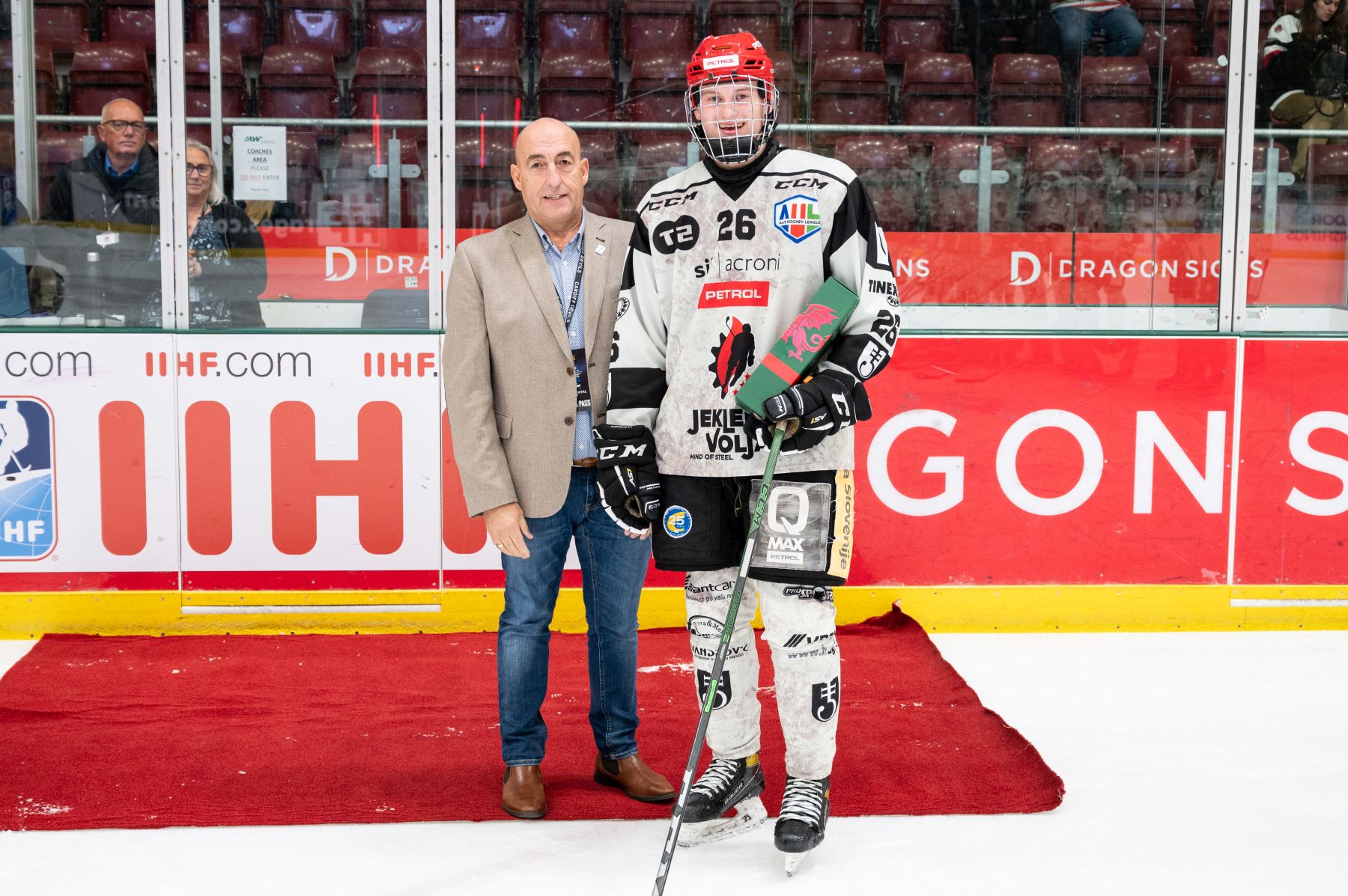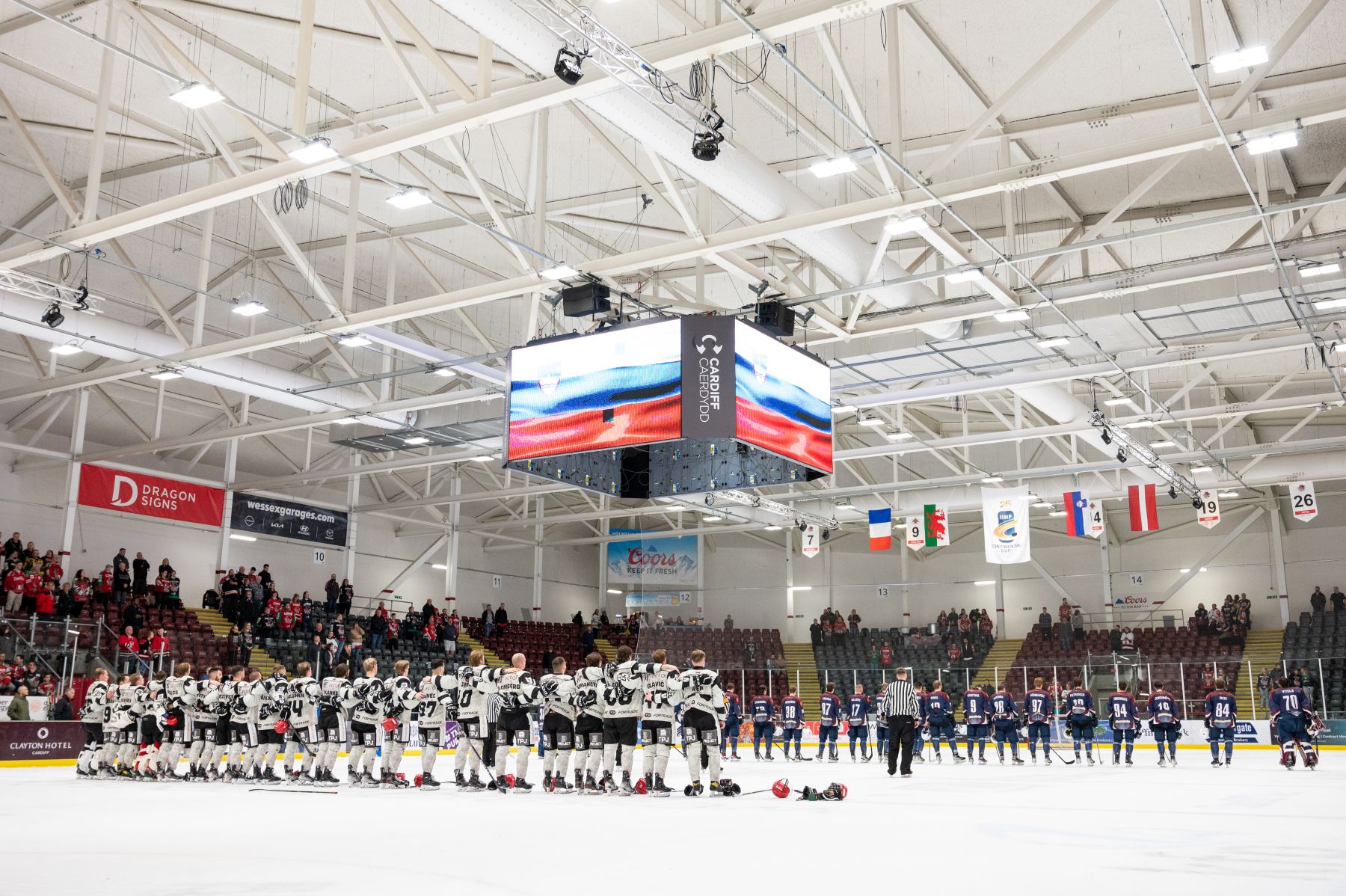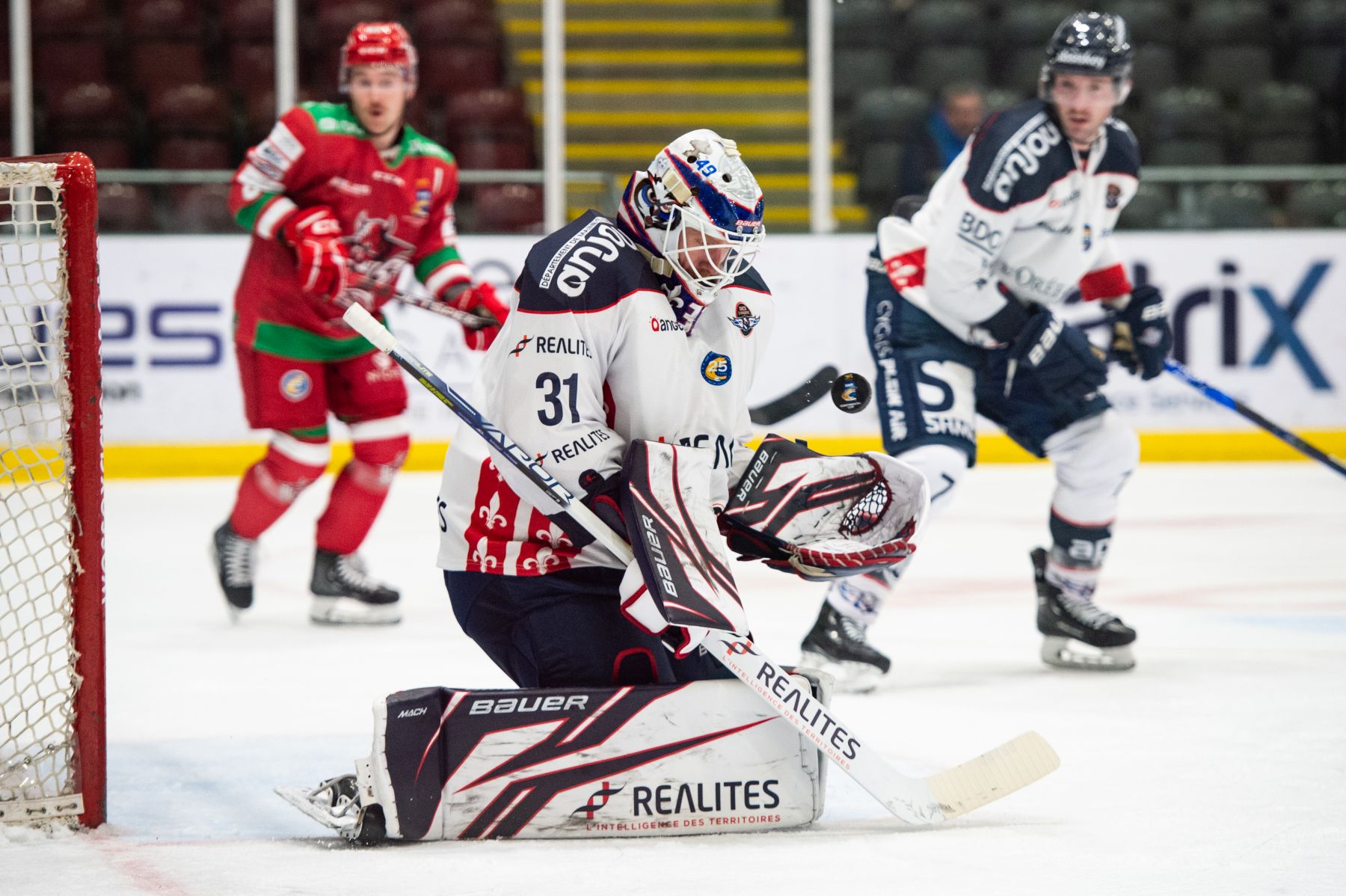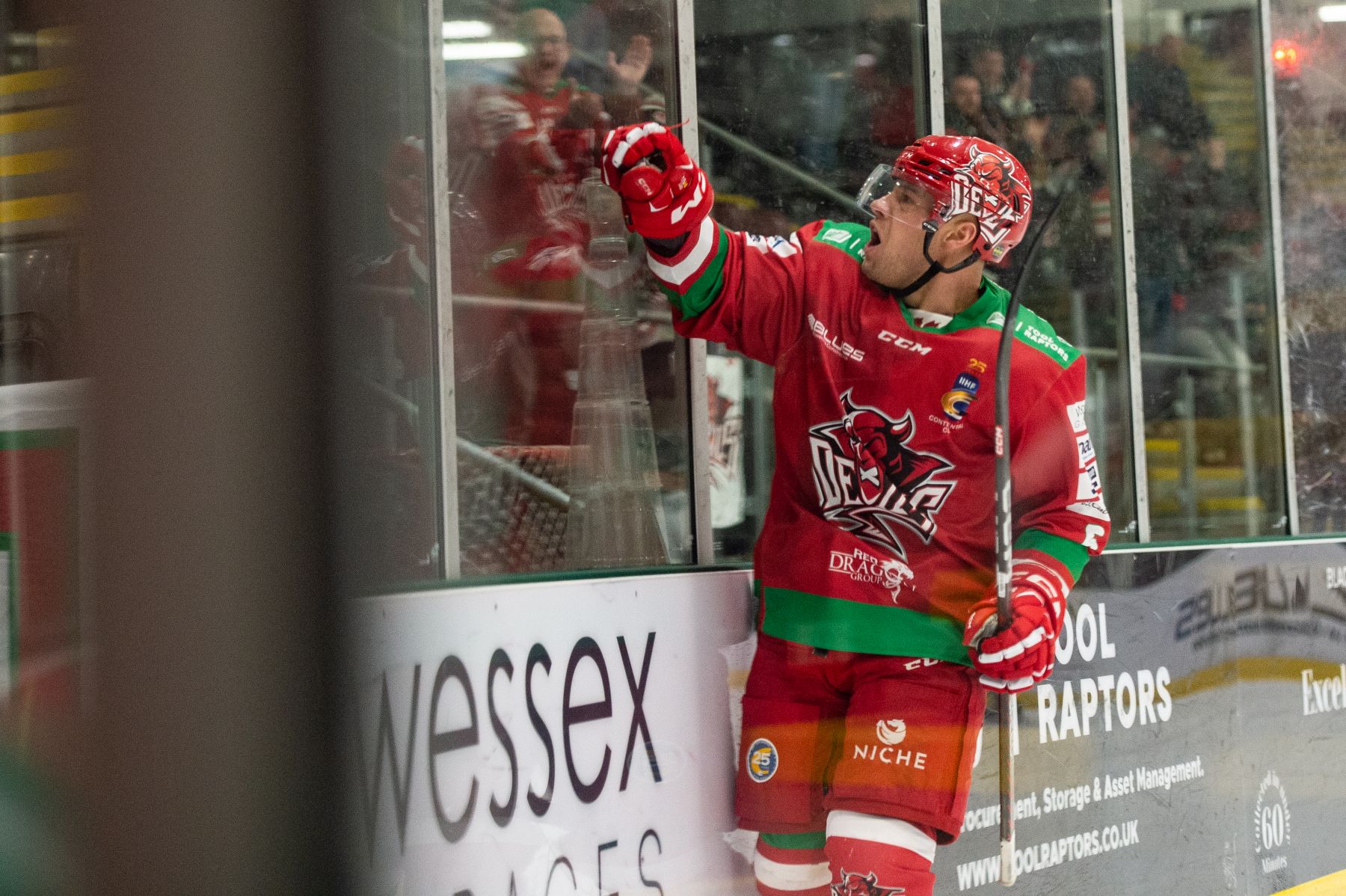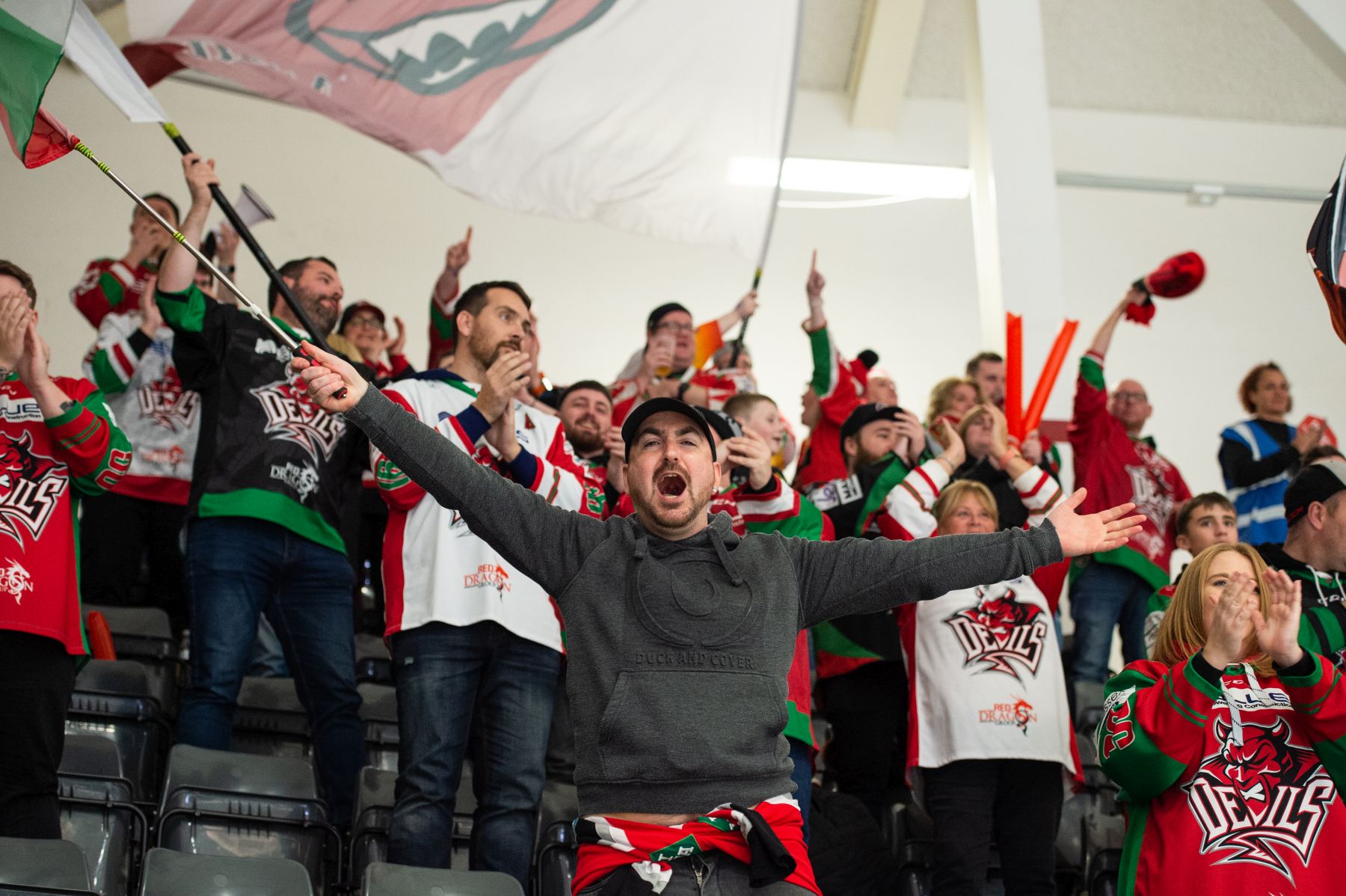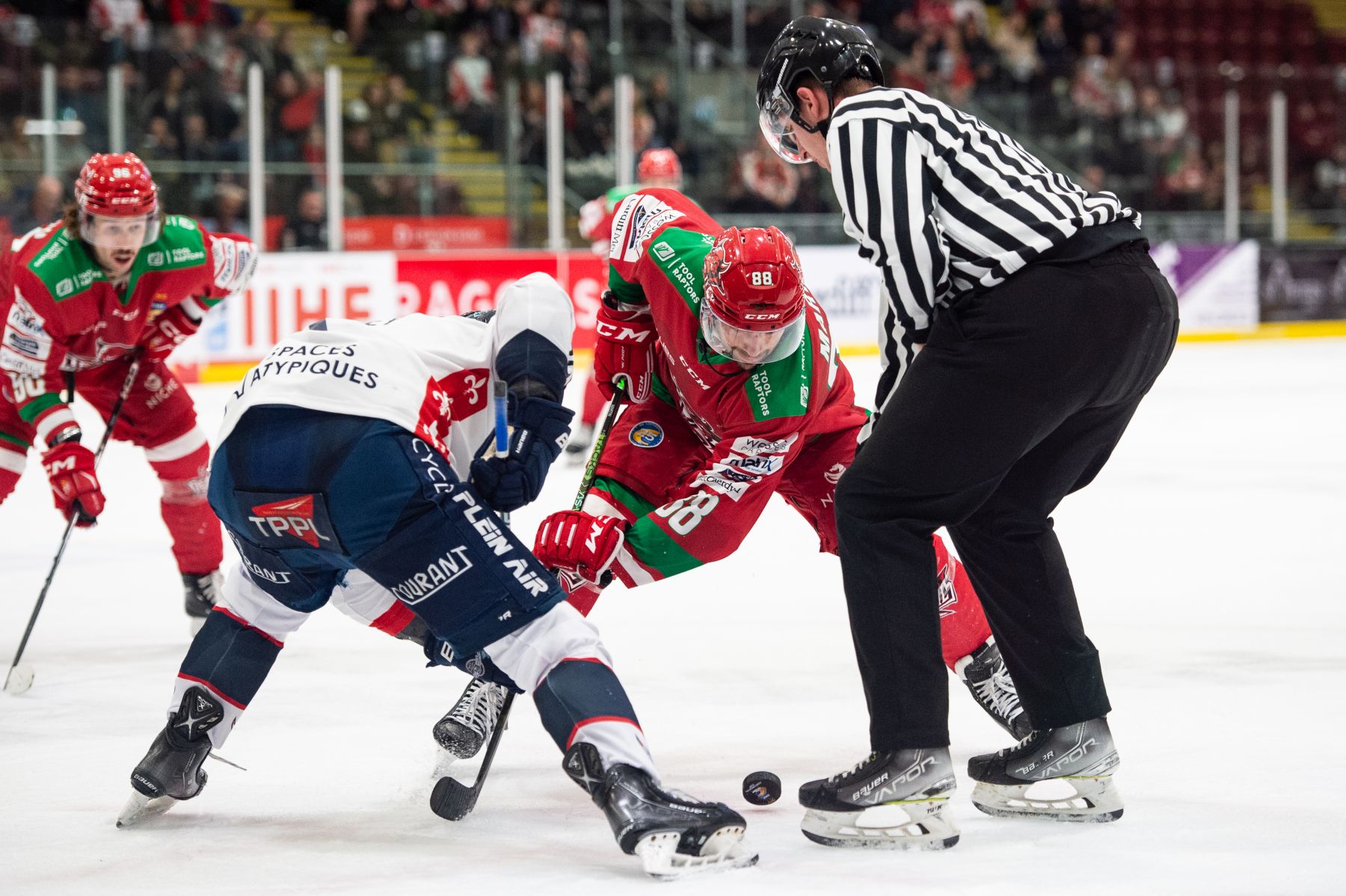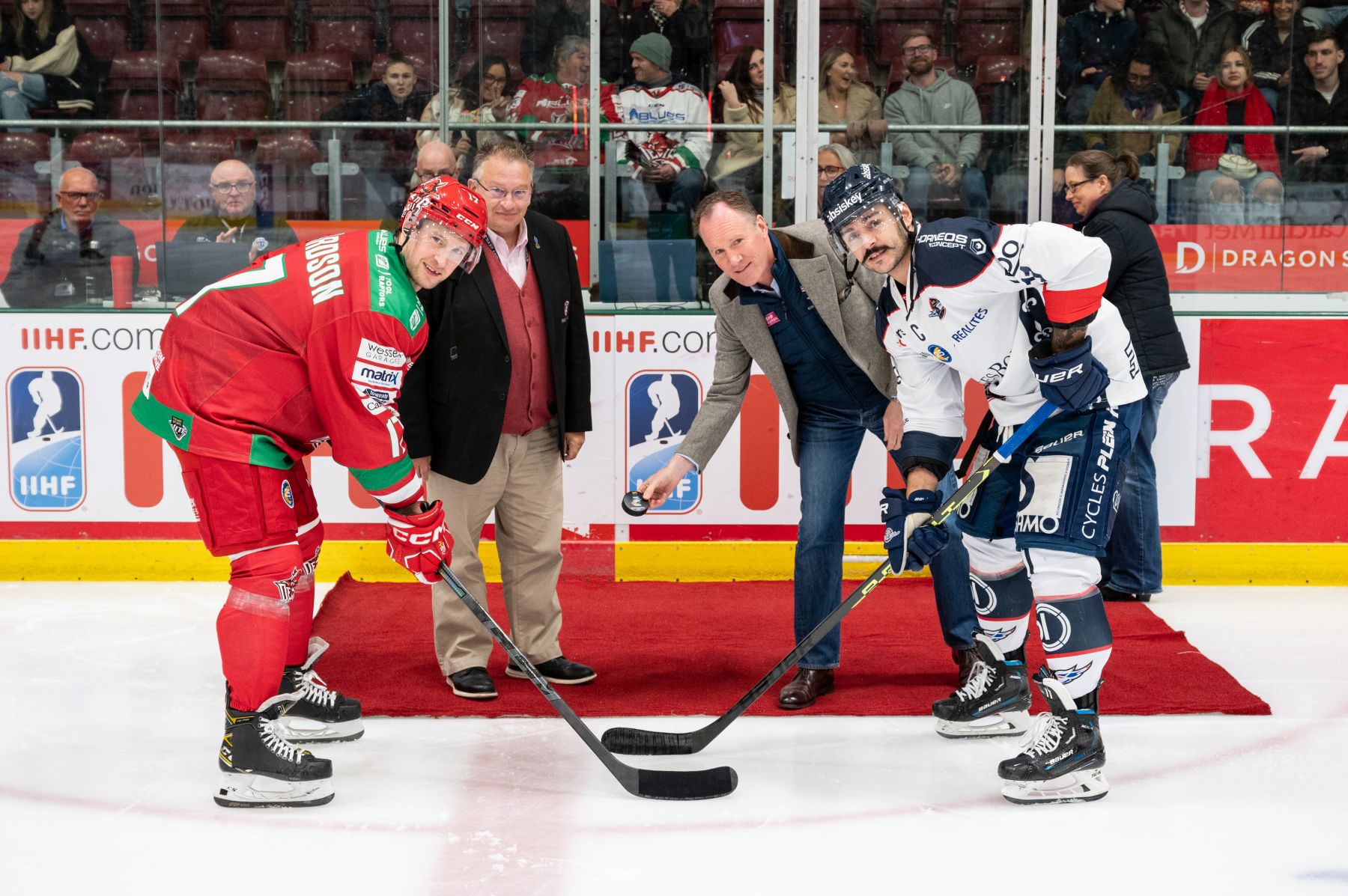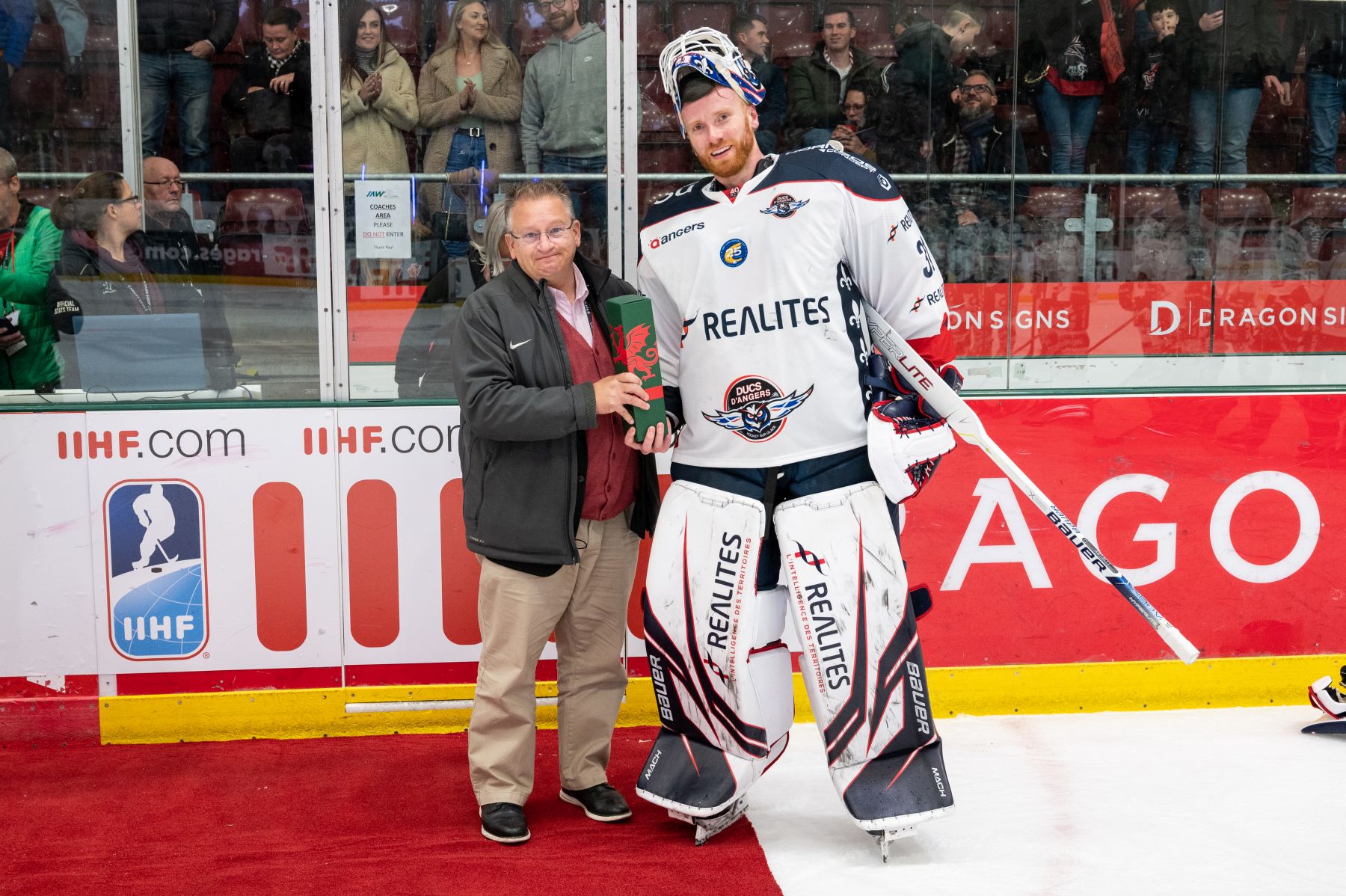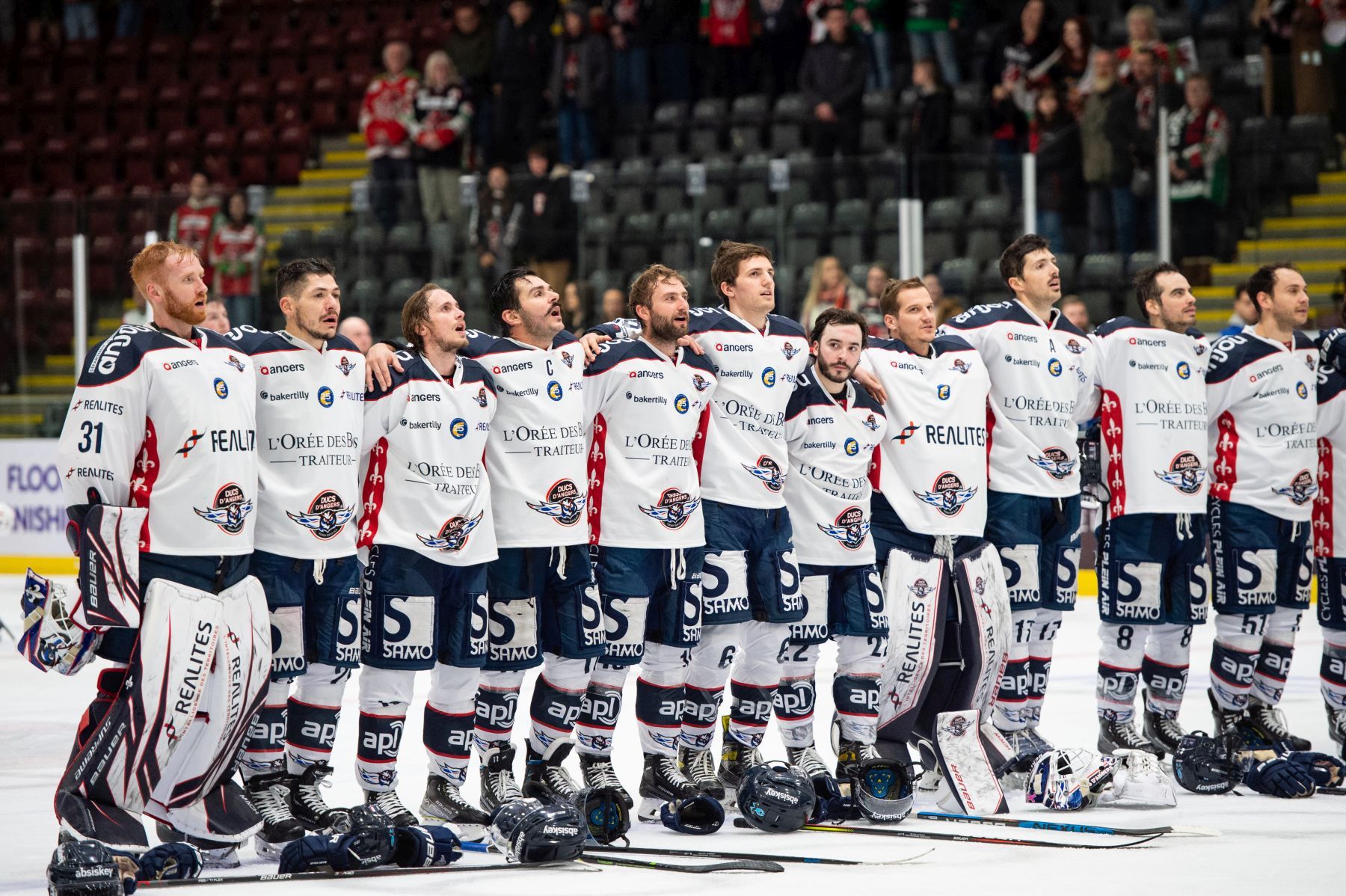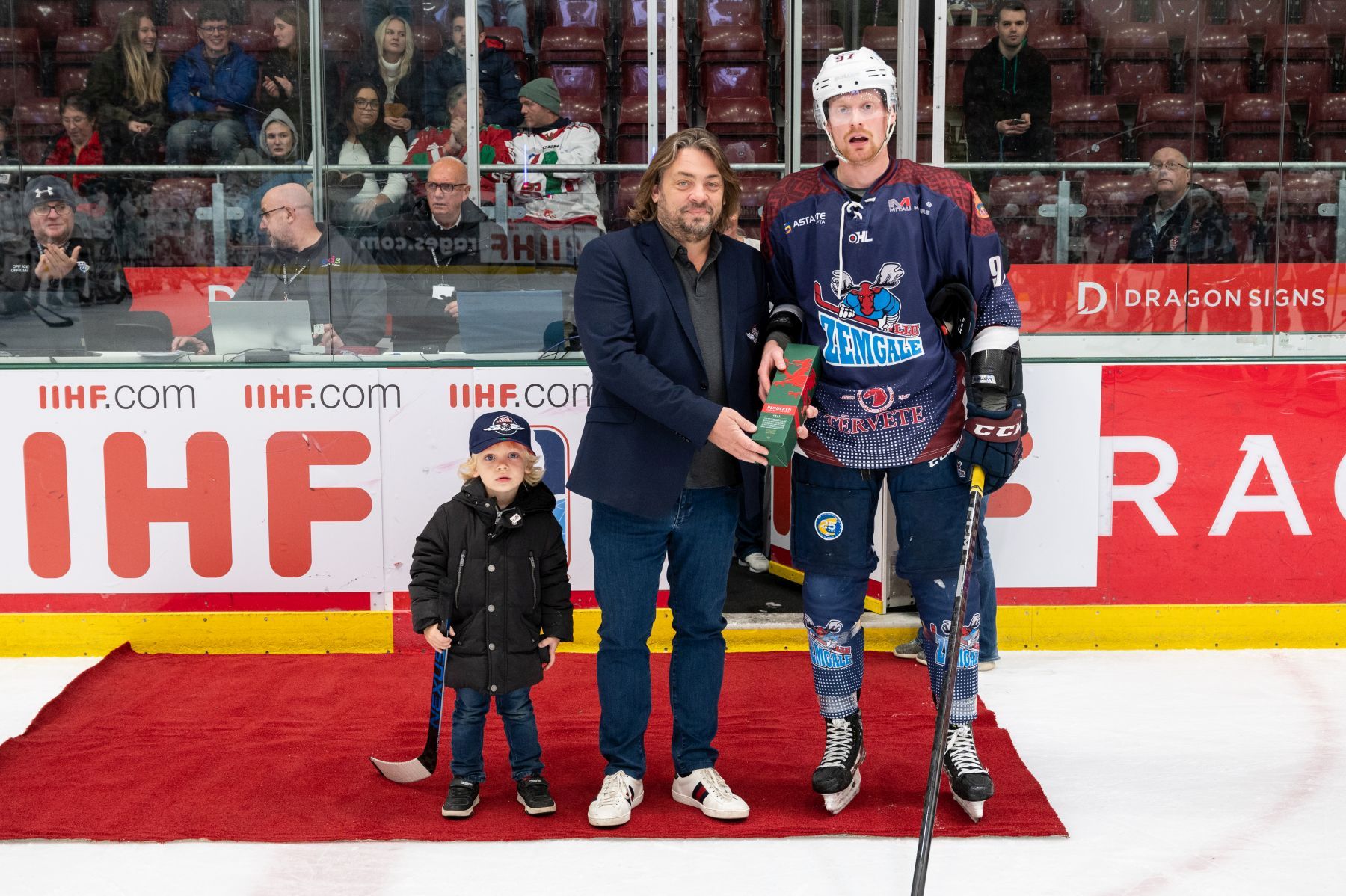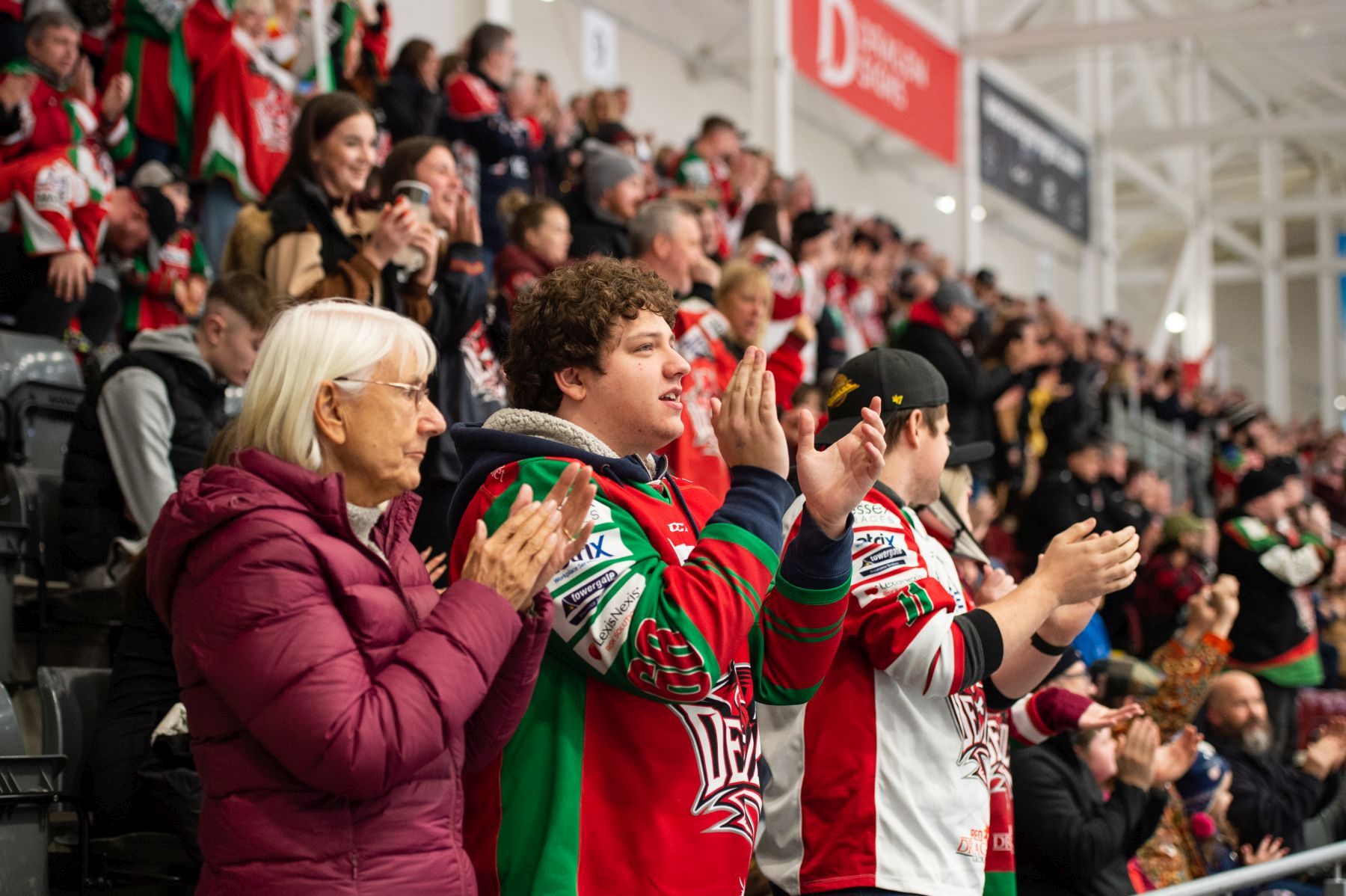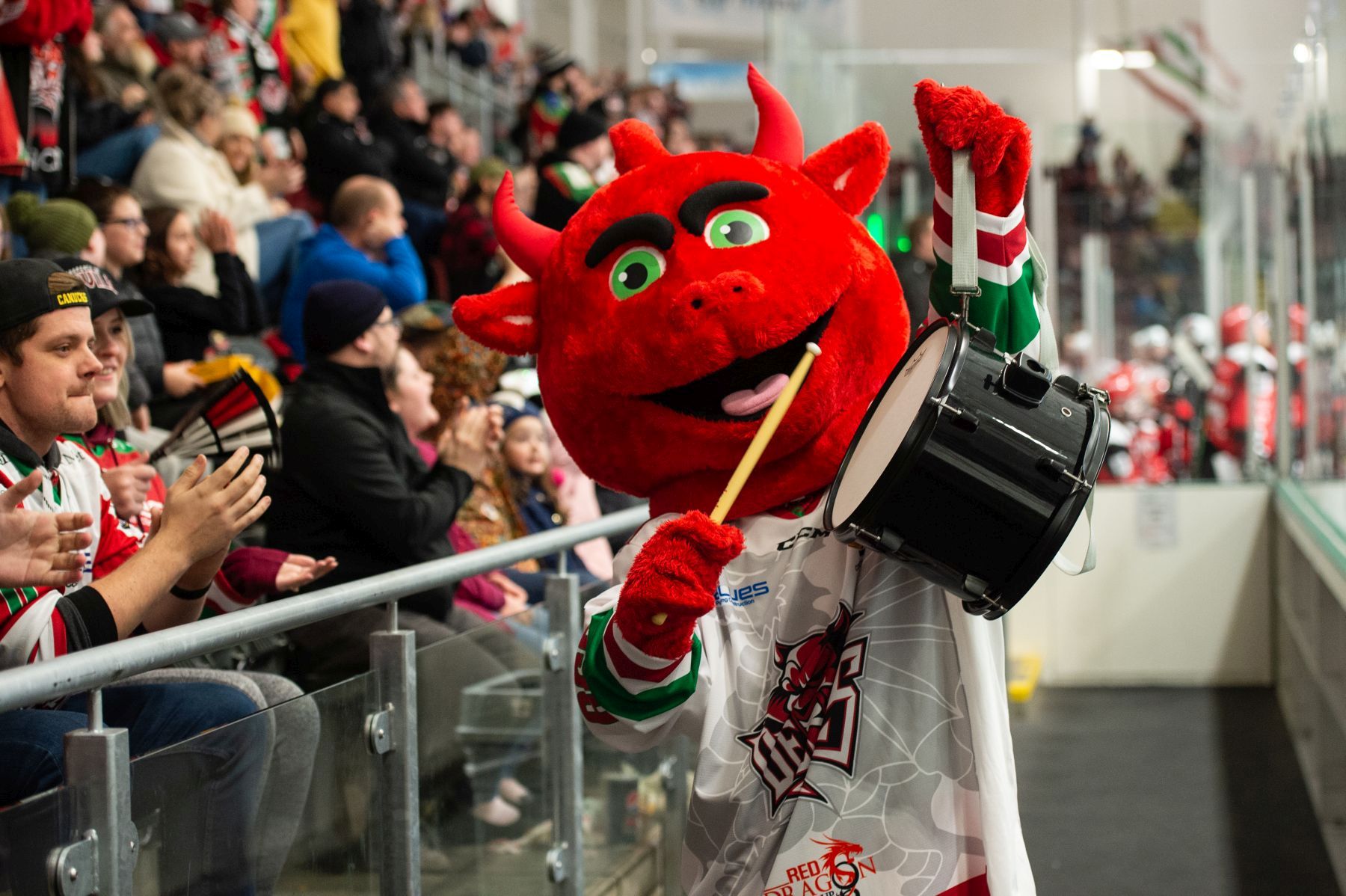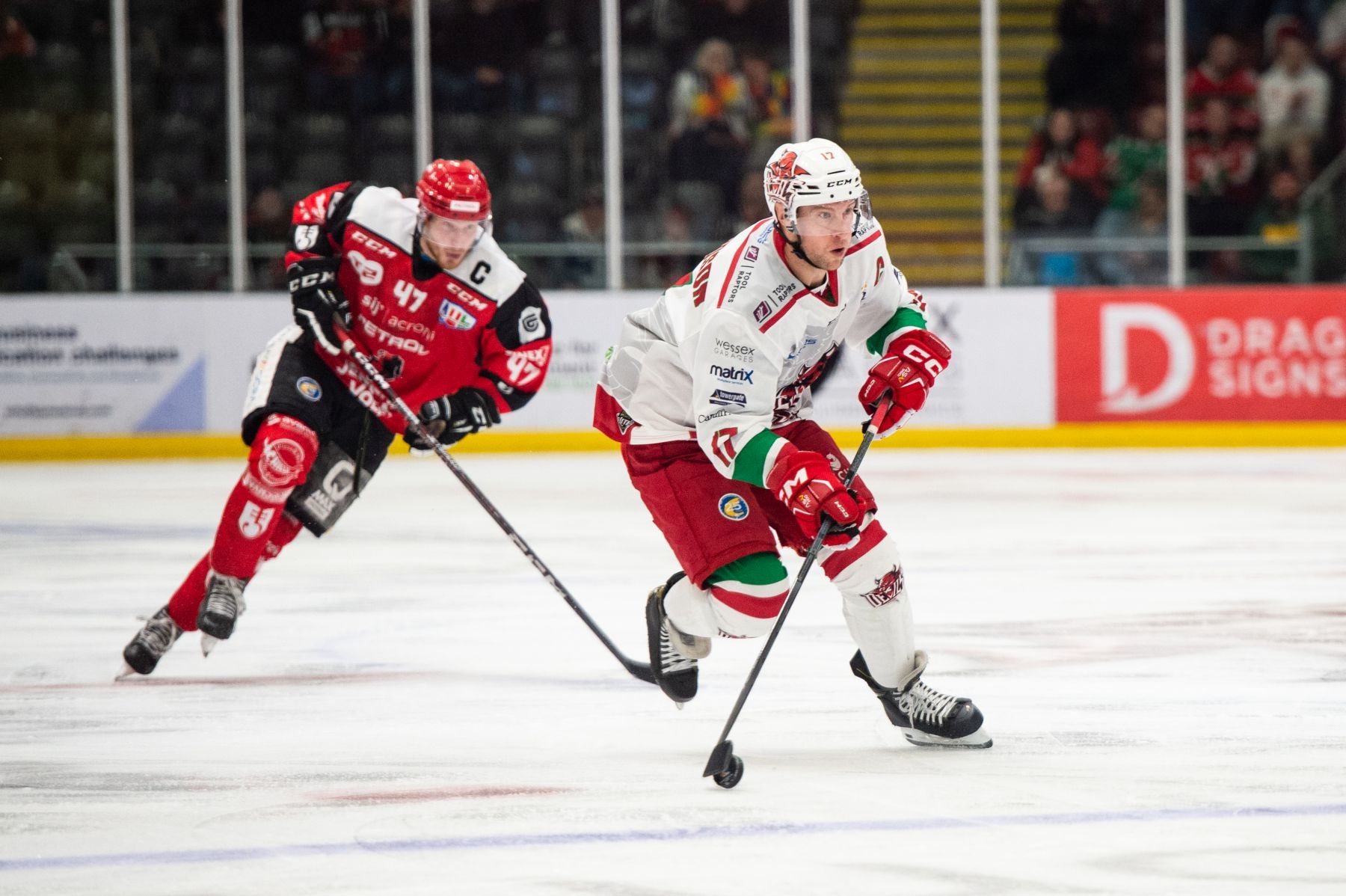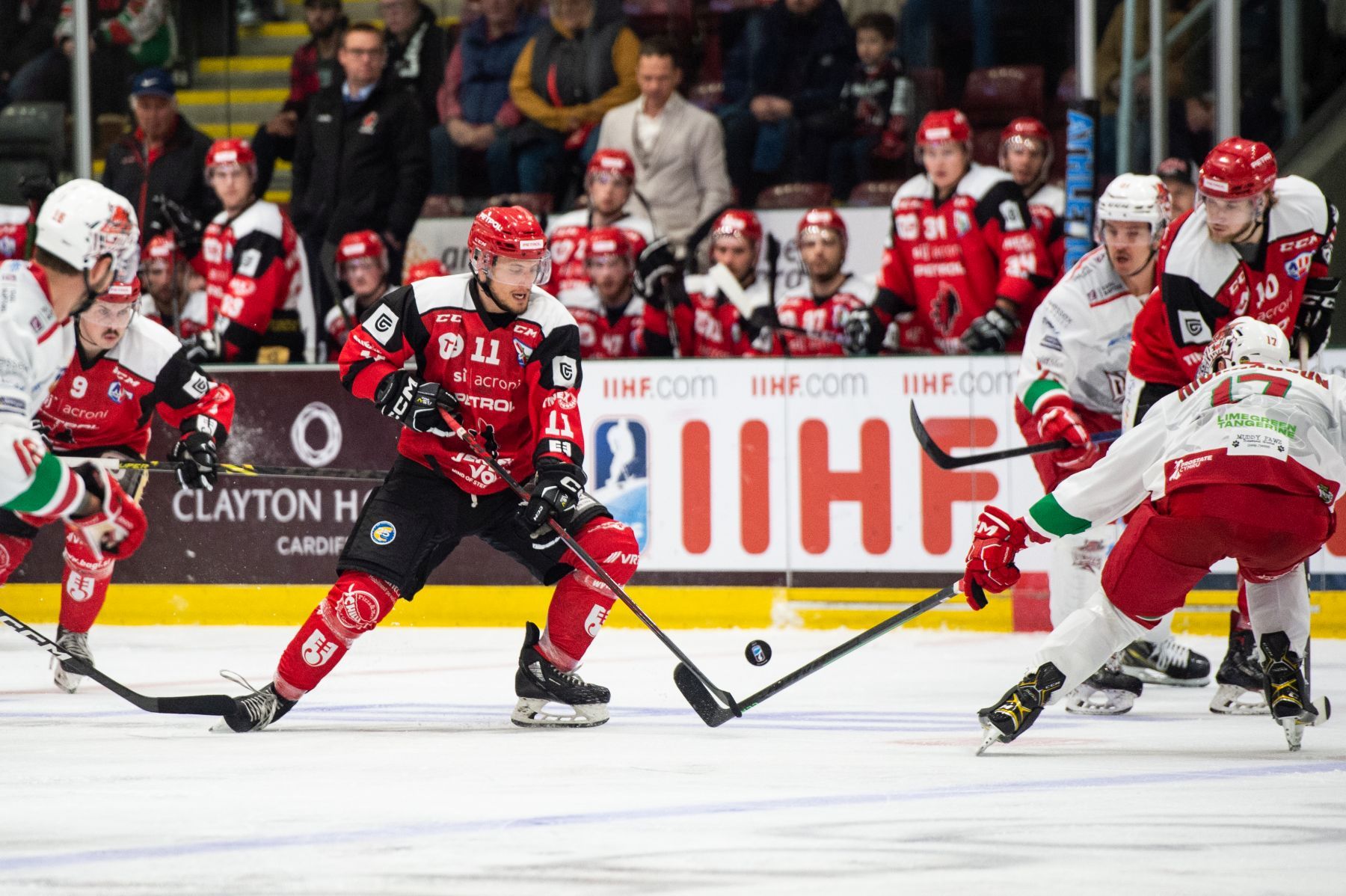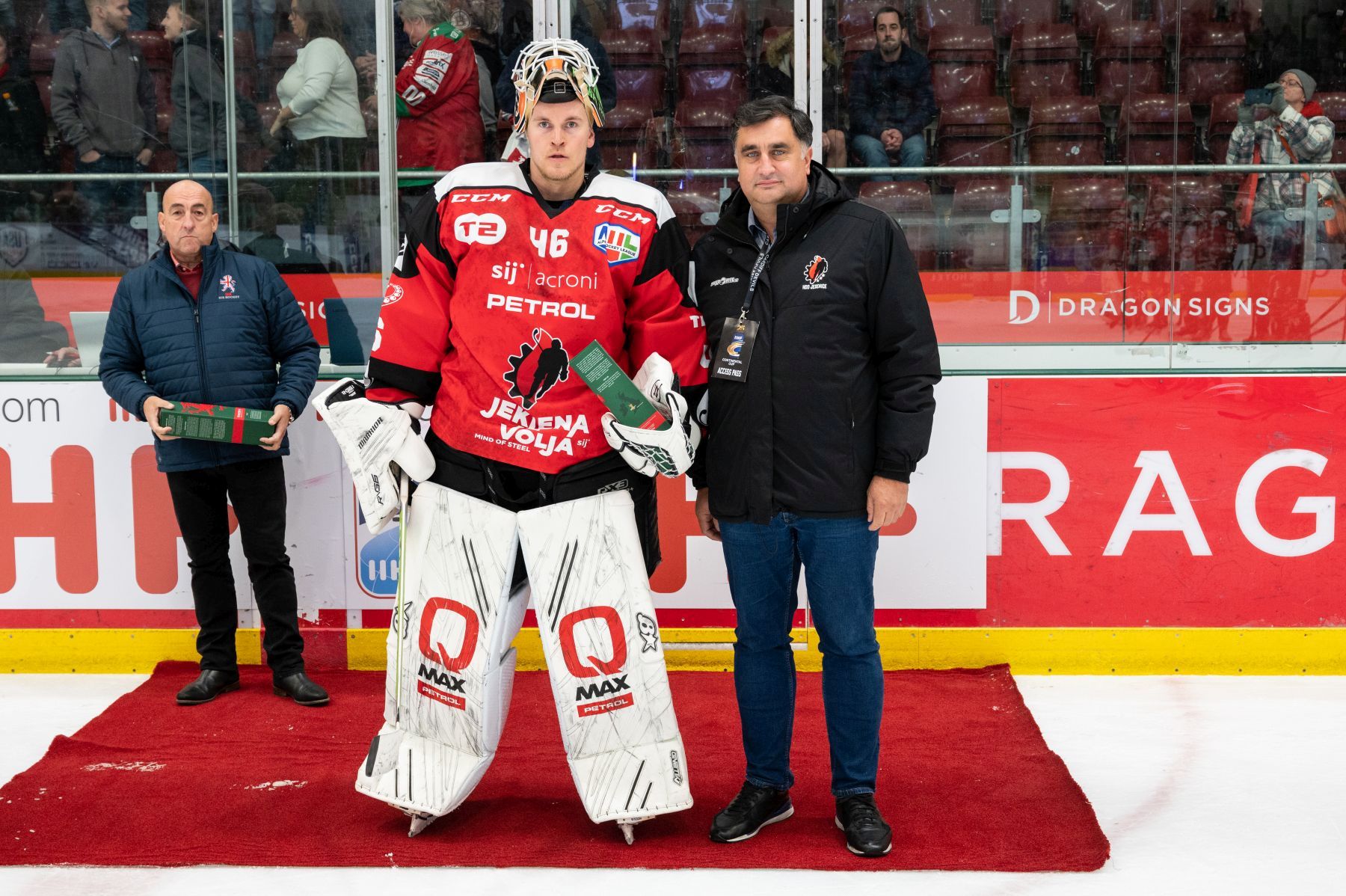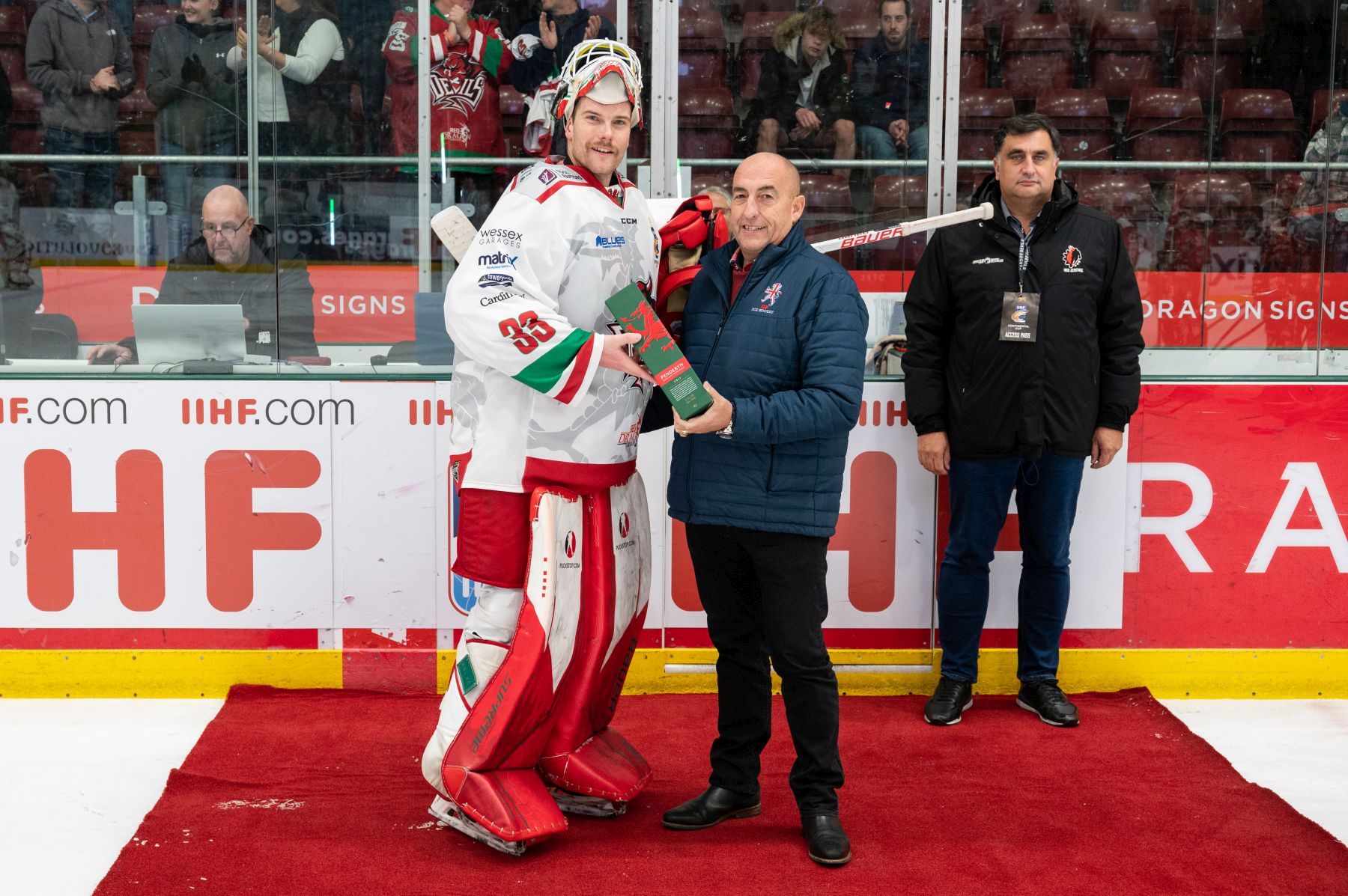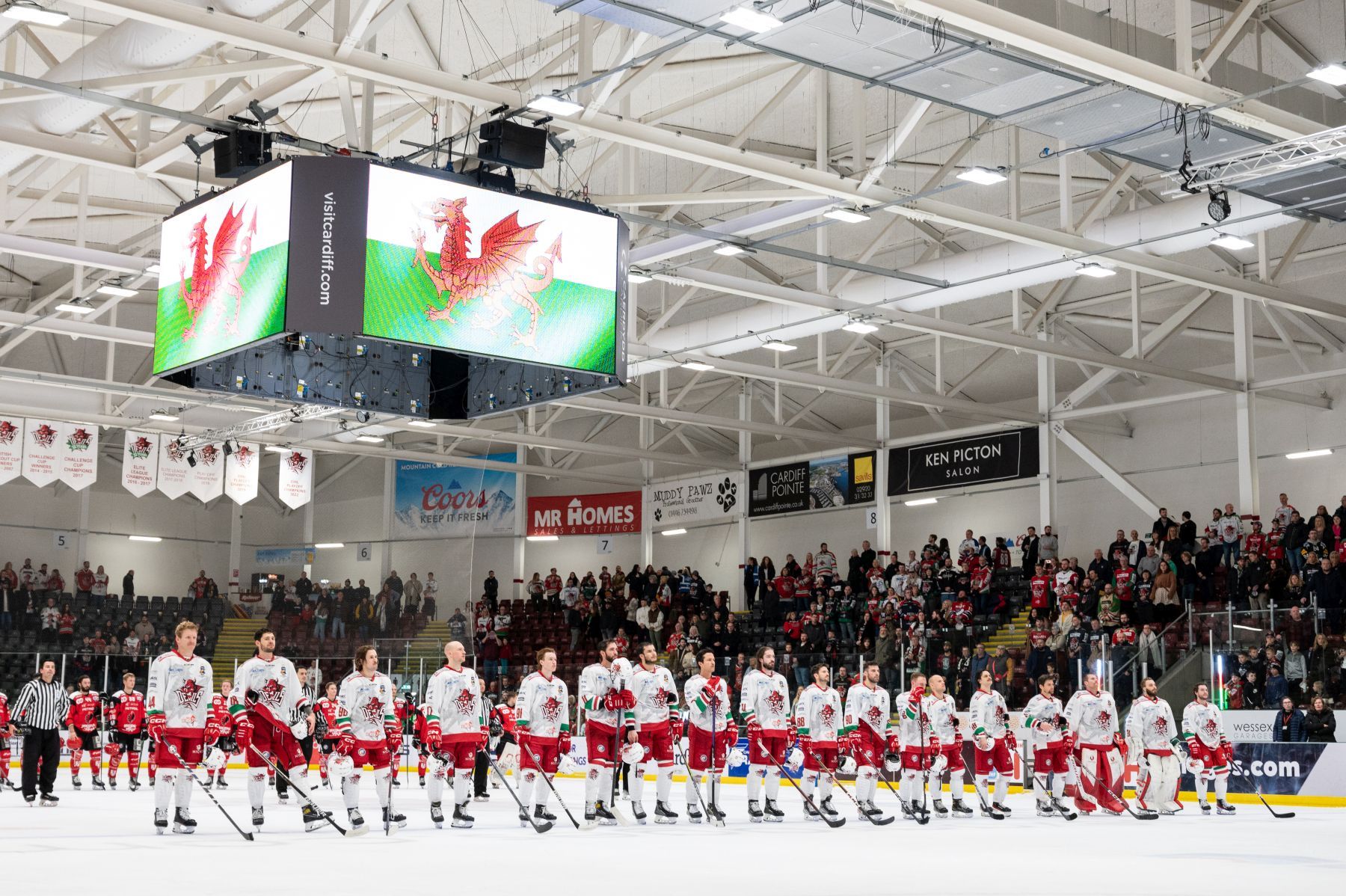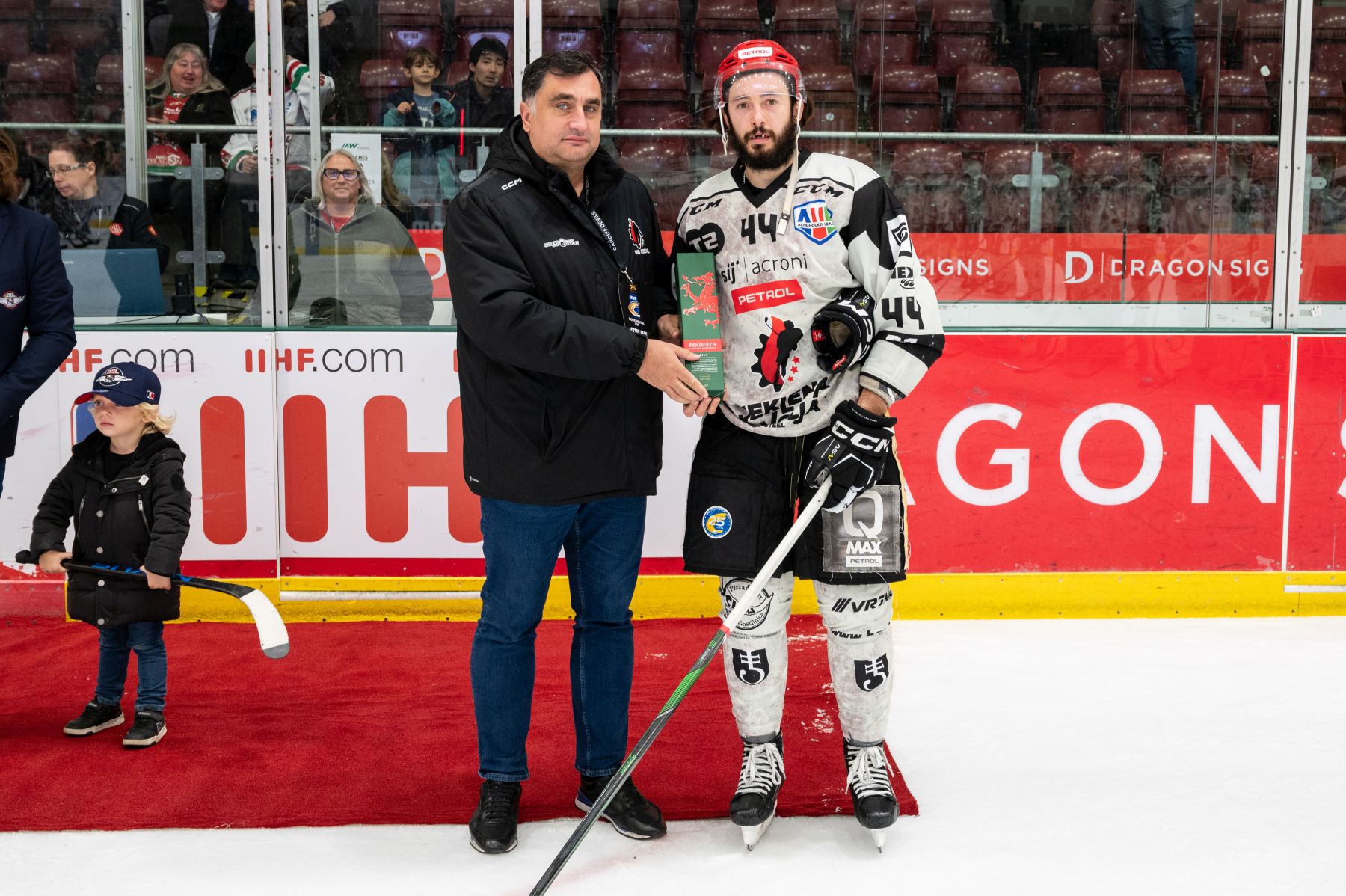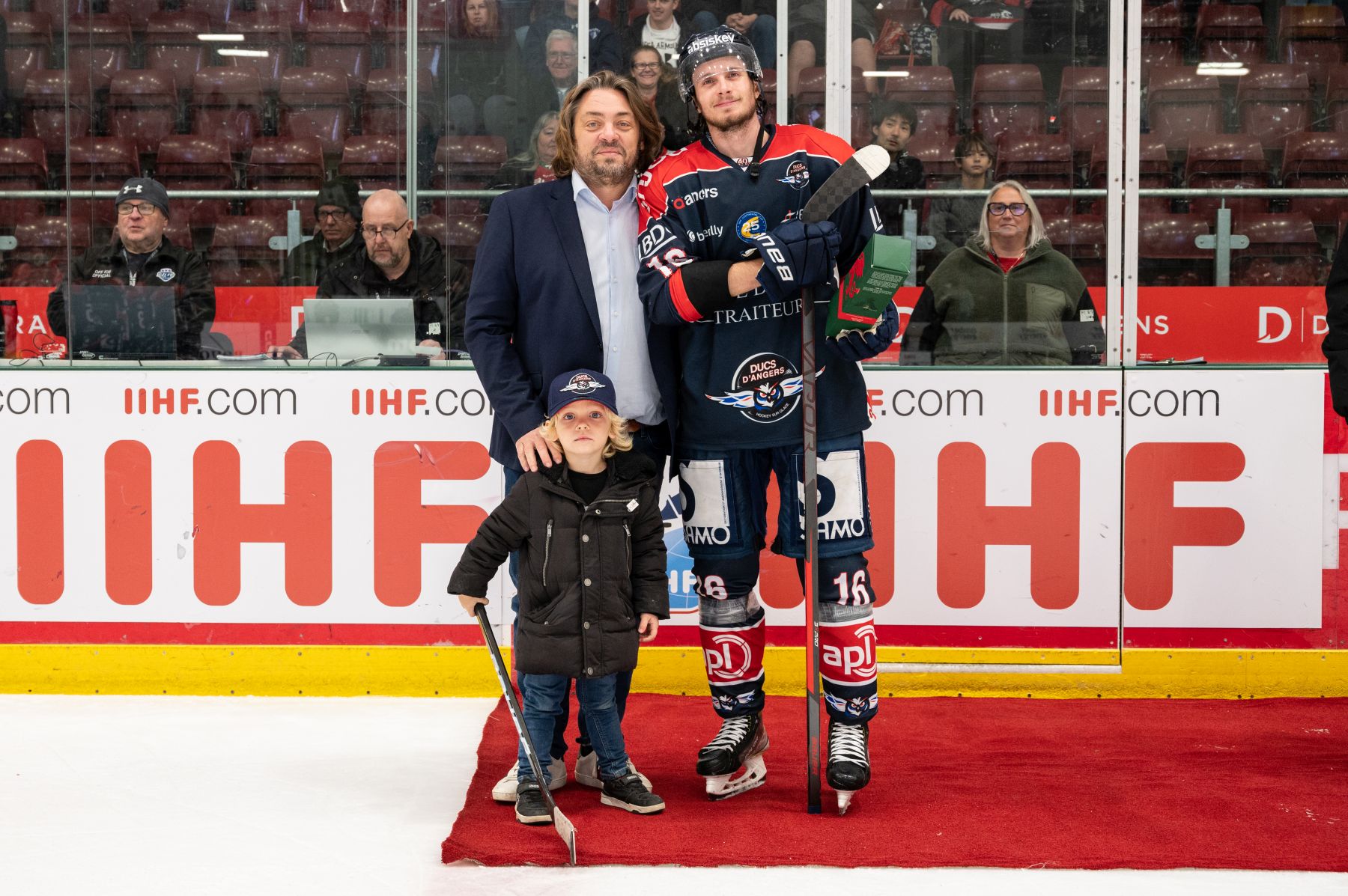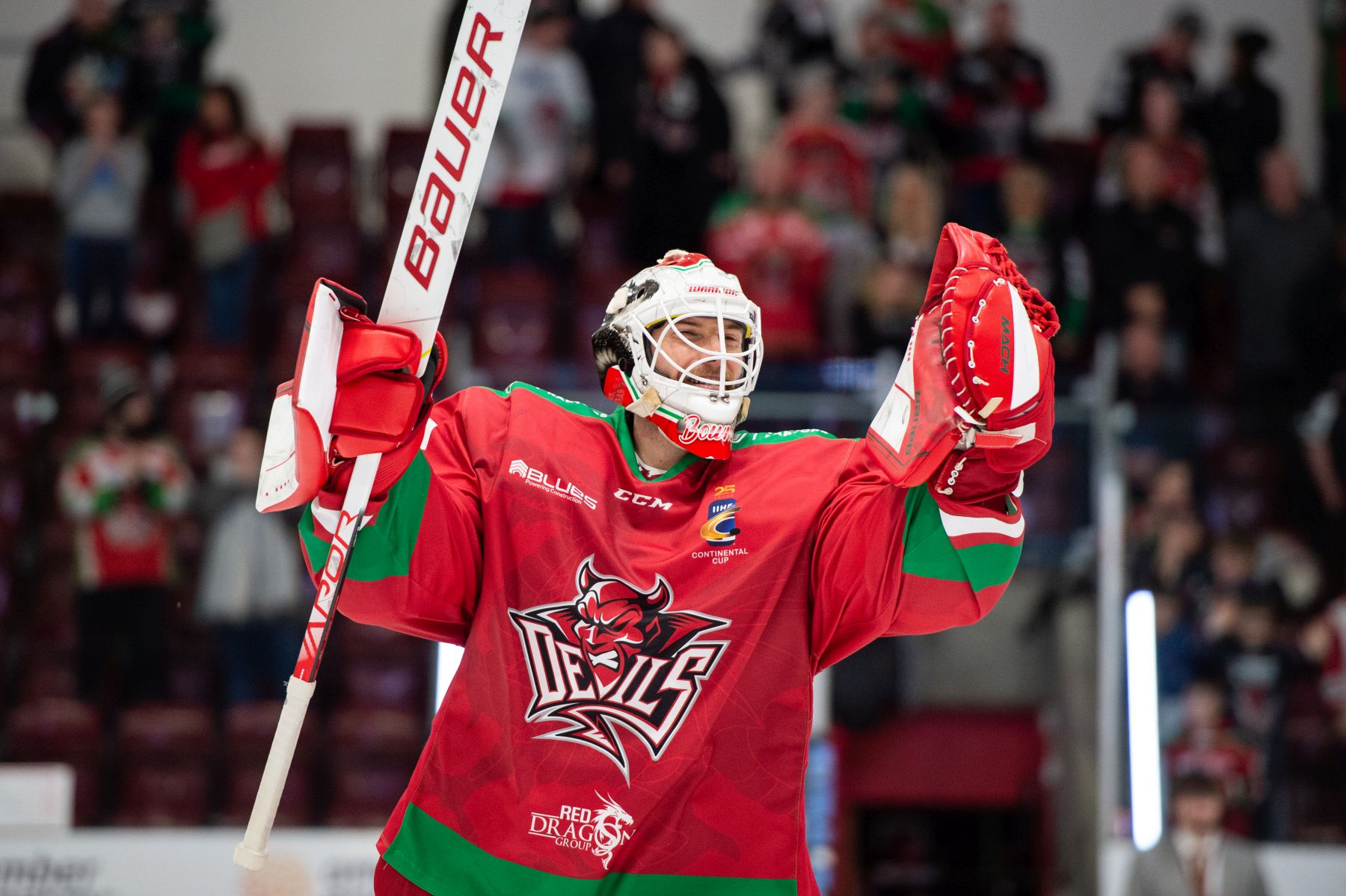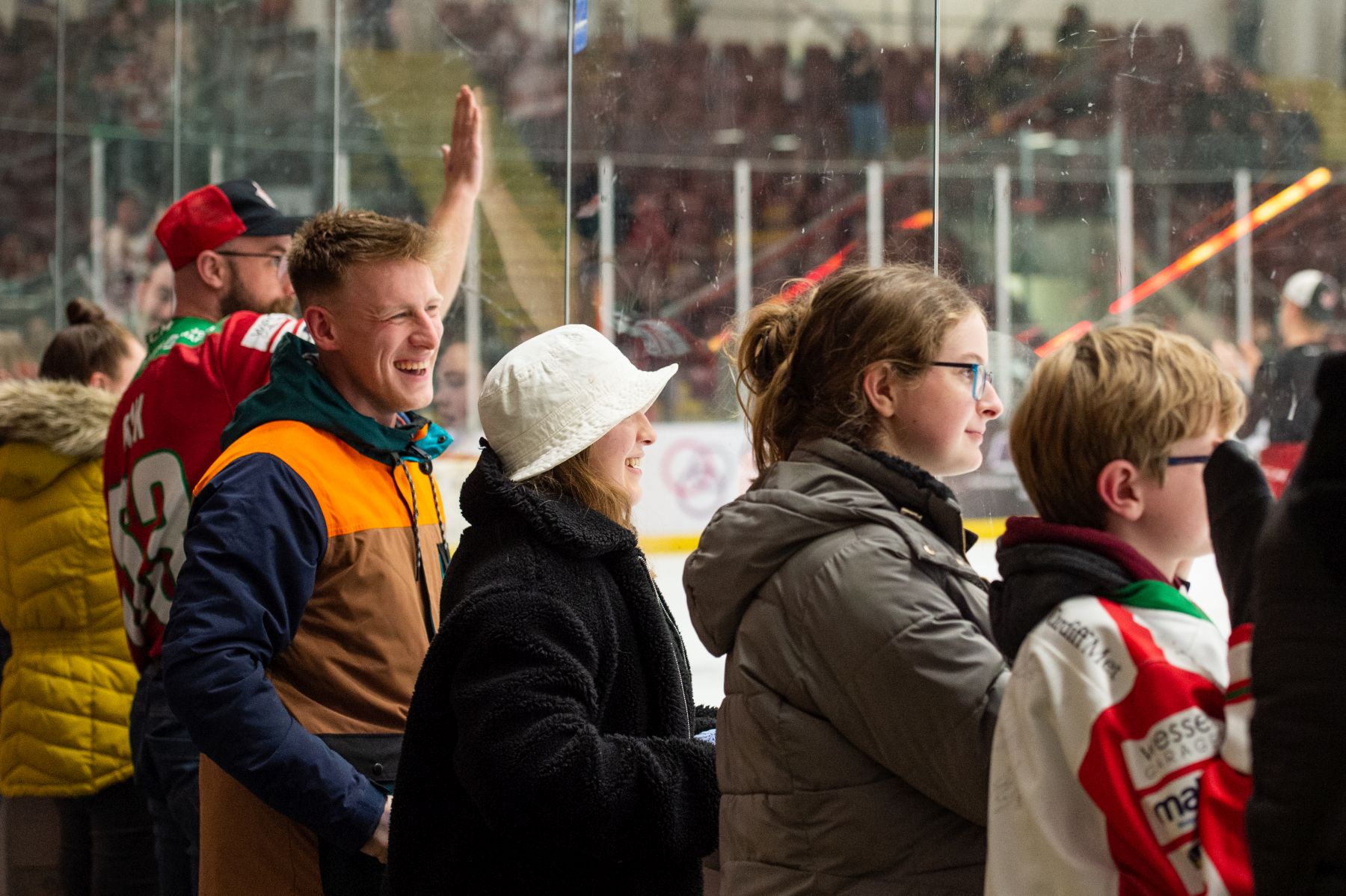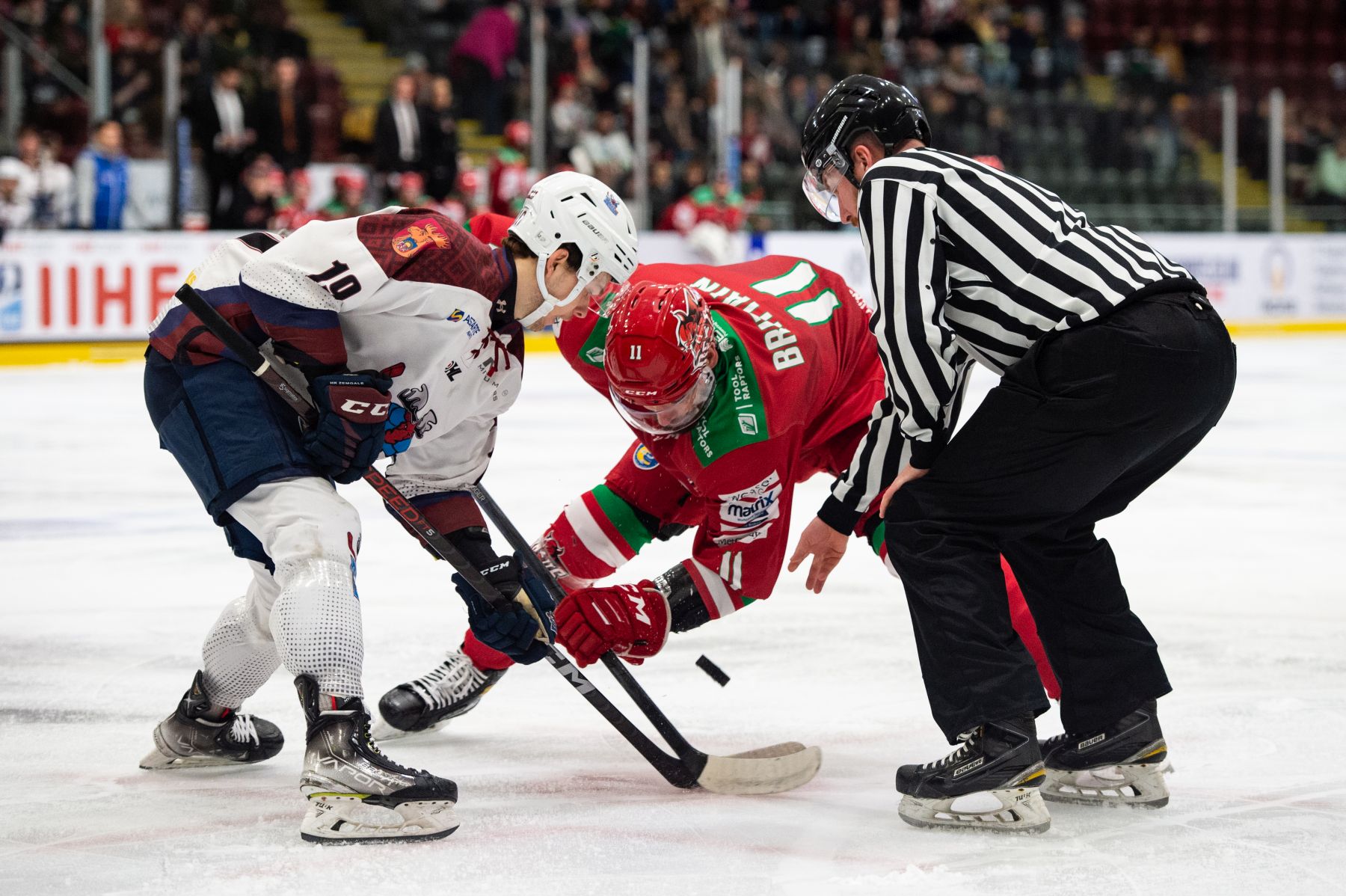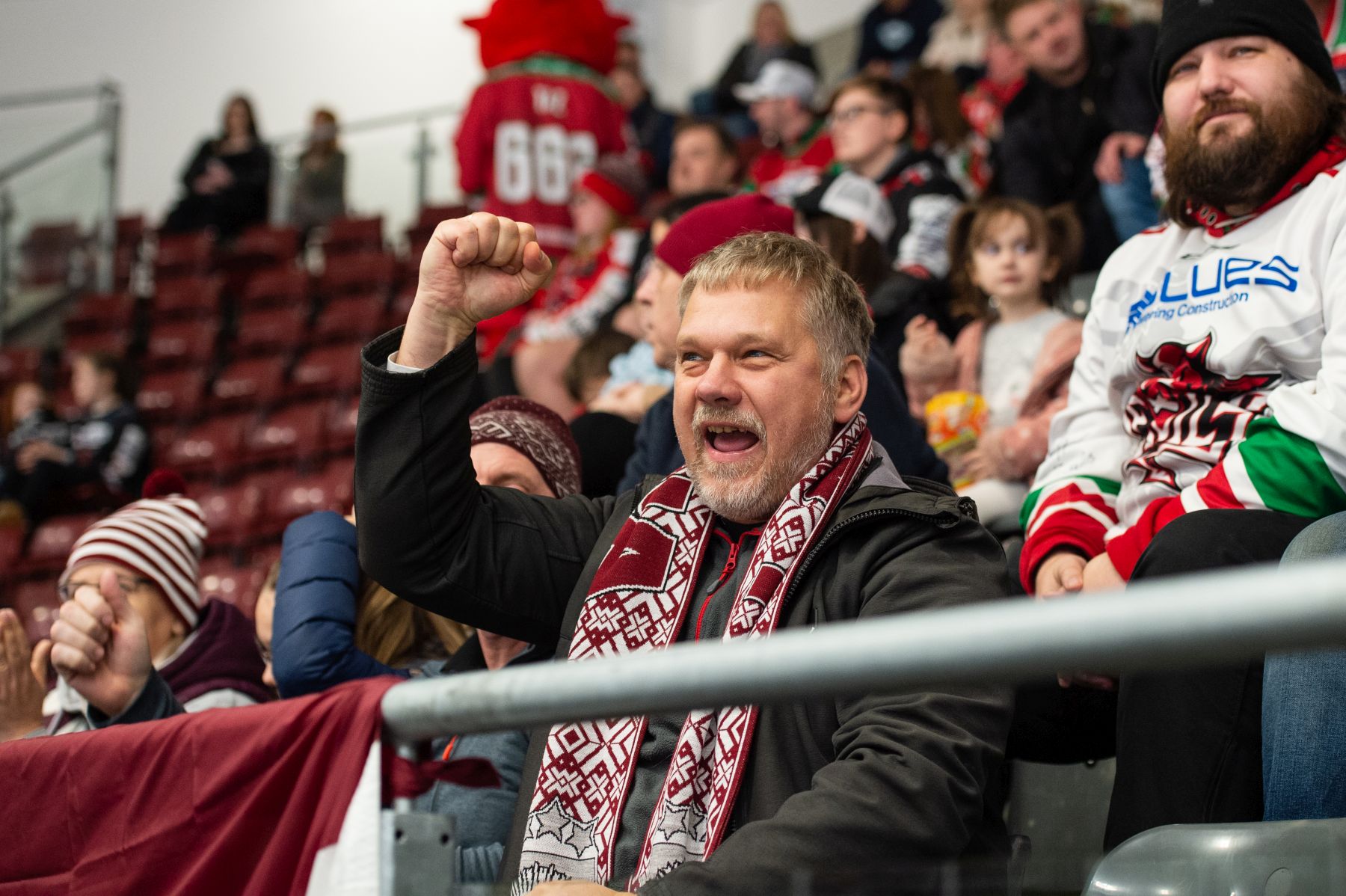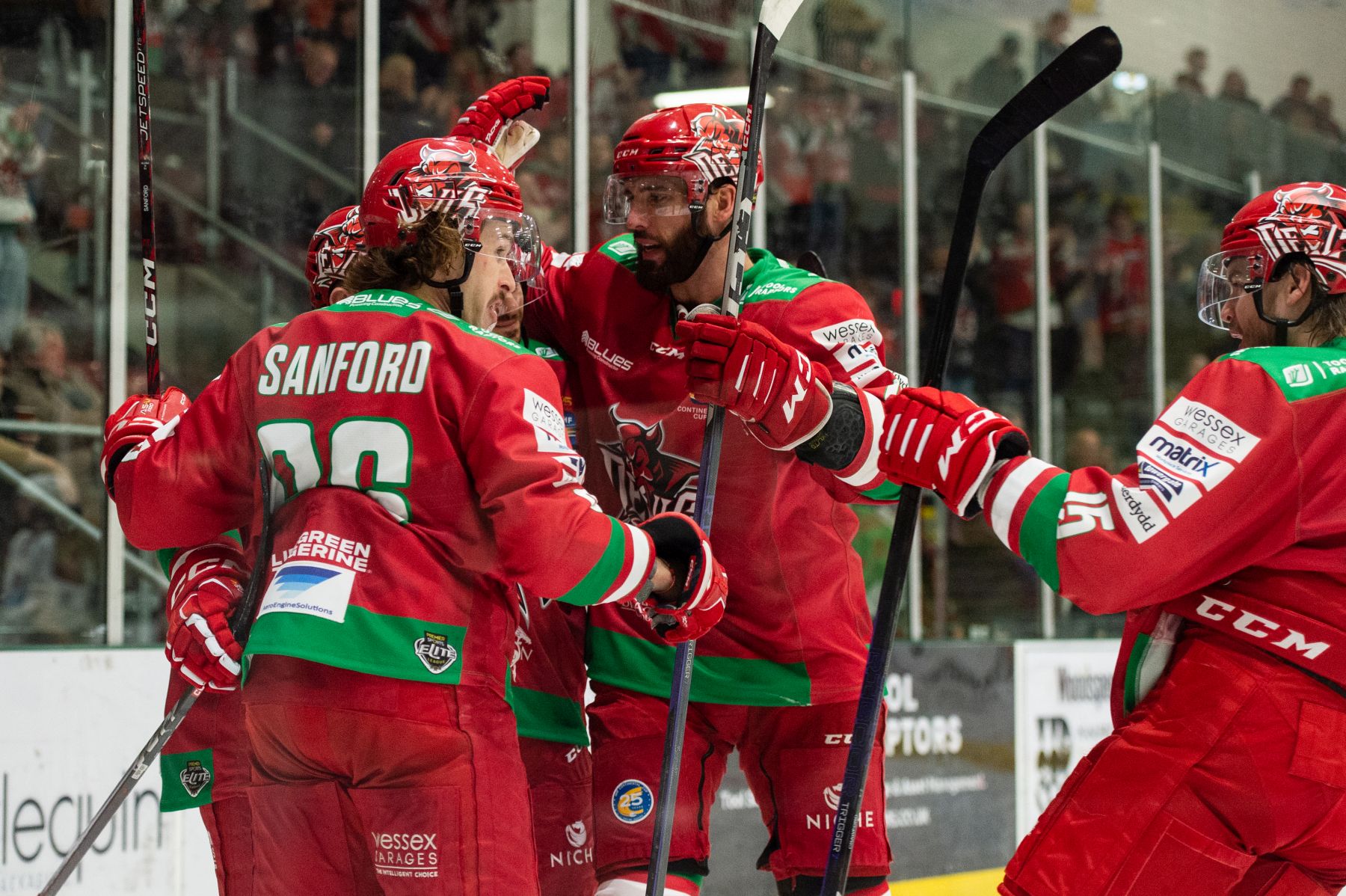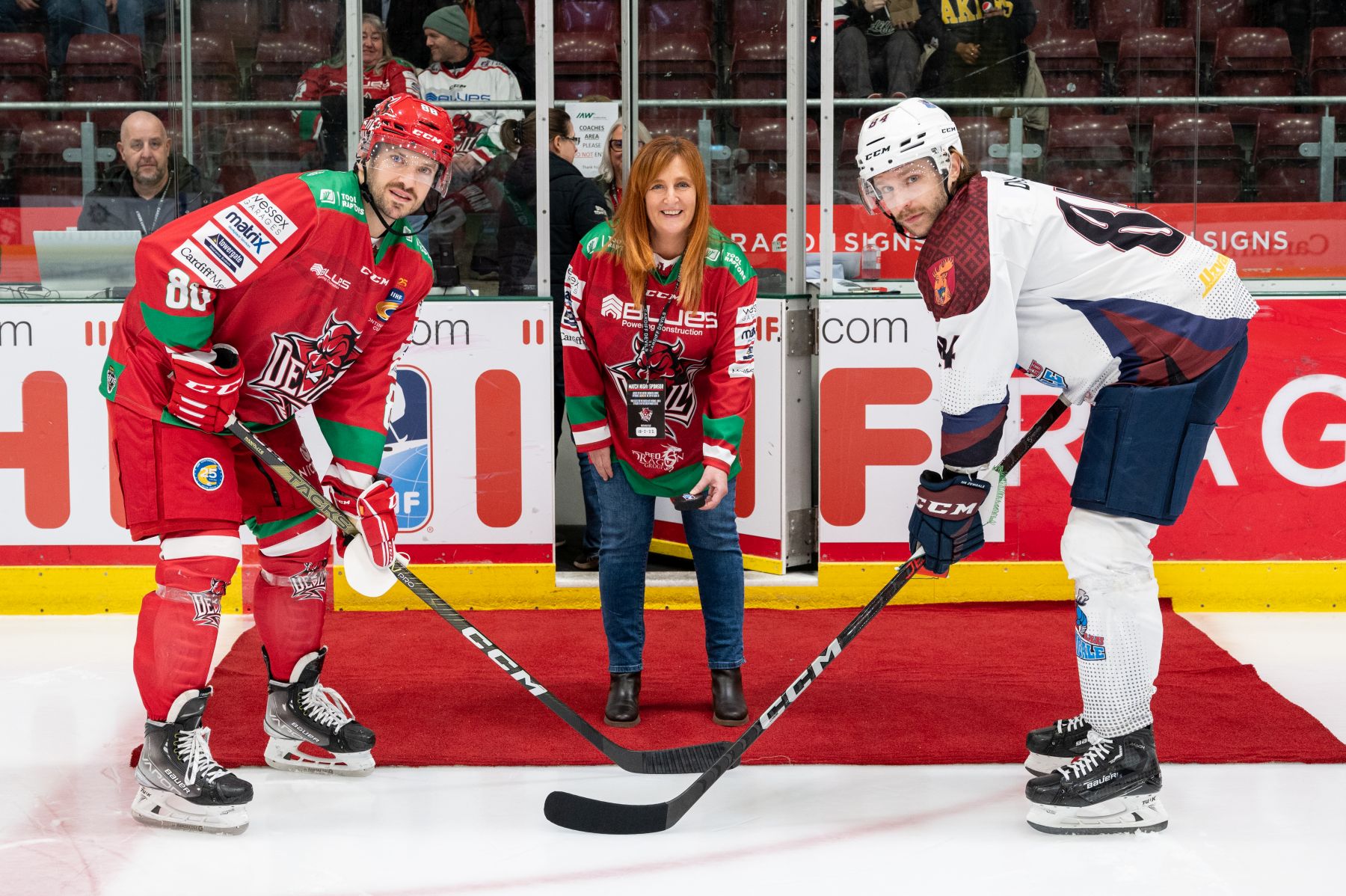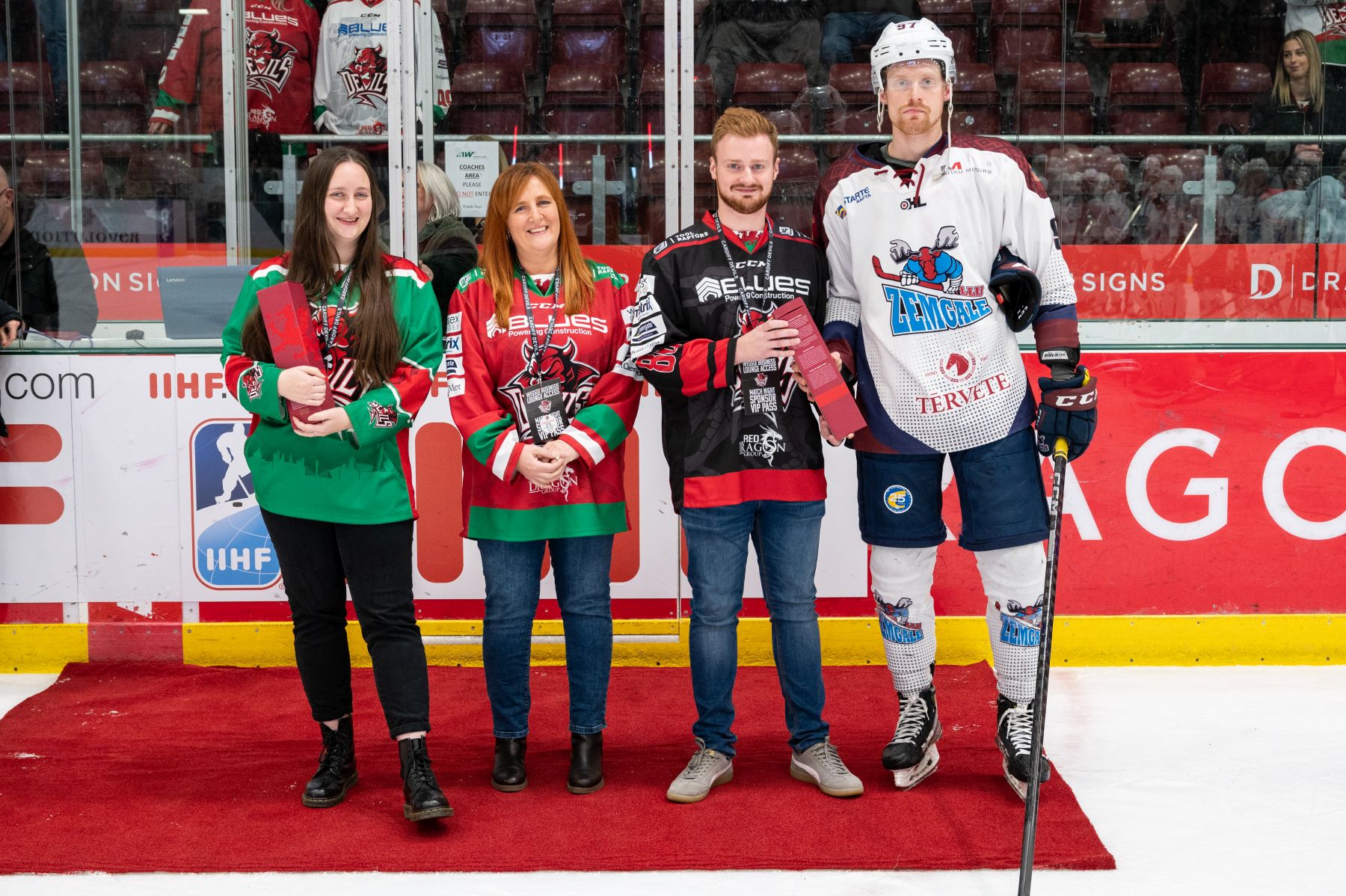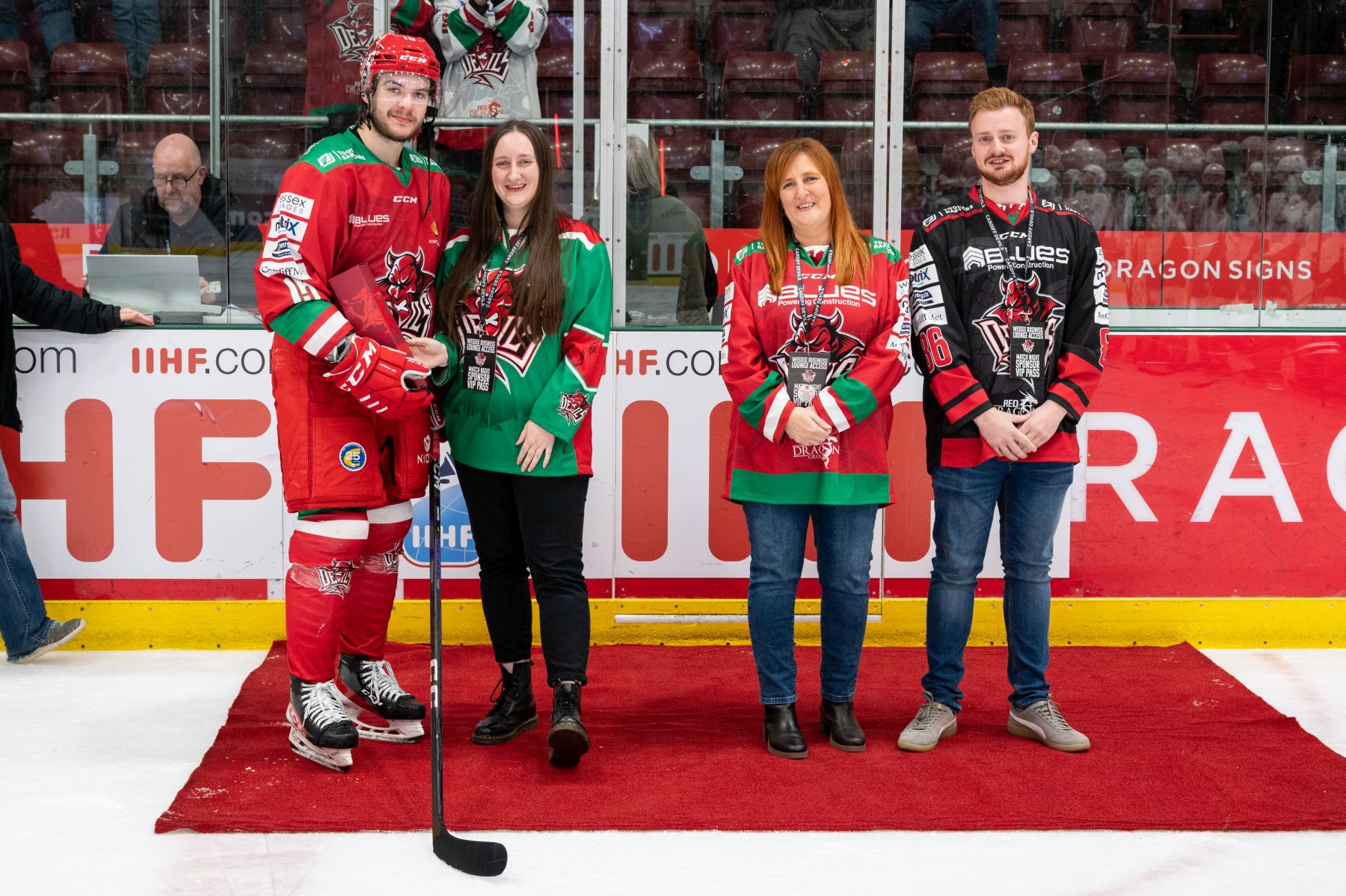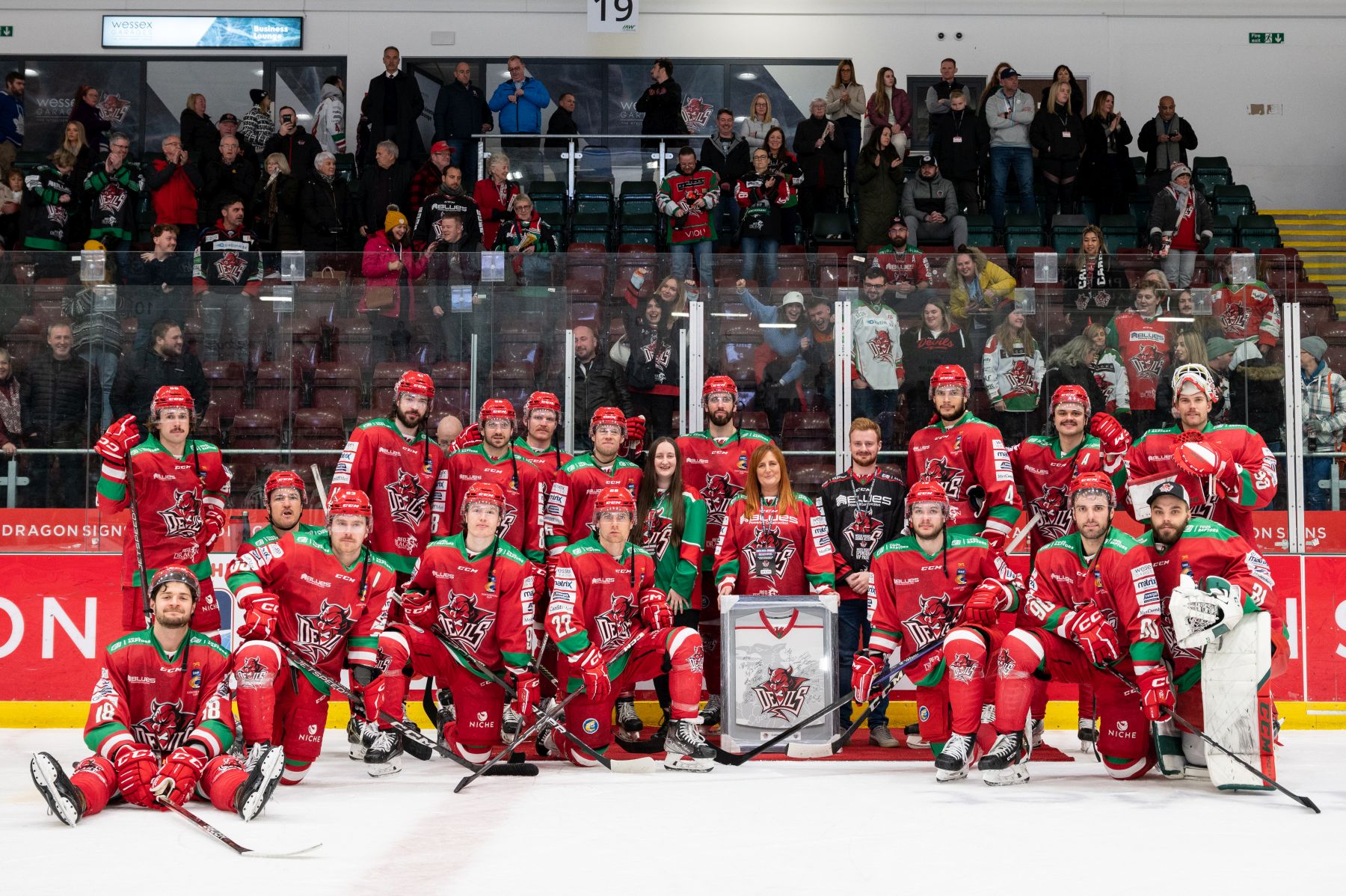Playing its first season in Finland’s Mestis, Zemgale Jelgava celebrates at home after scoring against Peliitat Heinola.
photo: Ruslans Antropovs
Latvia and Finland co-hosting the upcoming 2023 IIHF Ice Hockey World Championship started a burgeoning cooperation between the two hockey-mad nations. In its wake came a ground-breaking announcement that the Latvian champions Zemgale Jelgava would compete in Mestis, Finland’s second tier, starting from the 2022/23 season.
14 games into their inaugural Mestis adventure, Zemgale’s introduction to life in Finnish hockey has so far been challenging. Icing the youngest roster in the division, the Latvians are currently sitting in the bottom half of the table on 13 points. But games involving Zemgale’s all-Latvian roster have all been competitive affairs. The most recent ones, on the road against TUTO Hockey in Turku played on Tuesday and Wednesday, resulted in two overtime losses.
“As it took some time to put things in place ahead of our first year playing in Mestis, we were not able to fulfil all our ideas and wishes in terms of our roster. But our main focus is and will be on the development of our players. Our team is the youngest in the league, but I believe for sure that for next season we will be more competitive,” said Zemgale’s GM Edgars Buncis.
The Latvian champions will find little time to dwell on recent results. Less than 48 hours after playing in Finland, Zemgale will compete in sunny Wales in the IIHF Continental Cup Group E played in Cardiff this weekend. Looking to get back to winning ways they will face hosts Cardiff Devils, France’s Angers Ducs and Acroni Jesenice of Slovenia. A top-two berth in the round-robin competition would take them to the final four of the Continental Cup played between 13 and 15 January 2023.
Apart from skating in Mestis and the Continental Cup this season, Zemgale is also competing at the top end of the Latvian league OHL. With a gargantuan roster of 45 skaters and five goalies, they can be a tricky bunch to scout during a season where games come thick and fast.
“The total number of games for this season will be more than 85. It’s a lot and there is no reason to exhaust young players as they need time to practise and learn. If there are games played at the same time in Mestis and in the OHL, the best ones will play in Mestis,” explained Buncis.
Hailing from Jelgava, 43 kilometres south of Latvia’s capital Riga, Zemgale has played in the Latvian championship since 2002. Despite being reigning champions, they long lived in the shadows of the country’s flagship team Dinamo Riga. At the start of the year, Zemgale was still an affiliate team to Dinamo Riga, where young prospects would find valuable ice time. The escalation of the war in Ukraine at the end of February turned Latvian hockey on its head.
More or less overnight, Latvia’s Dinamo Riga as well as Finland’s Jokerit Helsinki withdrew from the KHL. Following the breakup, Latvian club hockey now needed to find a new suitable partner. They found their match in the north. An agreement between Mestis and Zemgale was officially announced on 12 August this year as Zemgale’s GM Buncis explained:
“Zemgale joining Mestis had been an ongoing discussion since May this year. Together with the Mestis management, we agreed that this is the right way to develop hockey in a region where Finland is an outstanding leader. In my opinion, joining Mestis was a logical next step in the development and I believe it would have happened anyway. The war in Ukraine made it happen earlier.
“We signed an agreement with Mestis for 1+2 years. If we are to reach the play-offs this season we will play all such games in Finland. But starting from next season we will become a full partner,” continued Buncis.
Finland’s second level, Mestis has for some time stated an ambition of becoming a professional league. One step towards its goal is an expansion beyond Finland’s borders with the Baltic countries being in sharp focus.
Increased travel costs, especially for the Northern and Eastern Finnish teams, were a thorny issue during the discussions. The distance between the northernmost team RoKi Rovaniemi and its southern counterpart Zemgale in Jelgava is 1,250 kilometres. Other topics of concern raised among the clubs were the level of competitiveness of the expansion team and the interest it might attract among fans of Finnish clubs.
“These question marks are very understandable and were discussed in several meetings. Each member wants to be sure that opening a league will lead to better quality, both in terms of the level of hockey and interest from spectators. We really enjoy being part of this league and we hope teams from Finland will find it interesting to visit Jelgava and have a different experience,” said Buncis.
As part of the agreement, Finnish teams will only be required to travel once to Latvia to play a doubleheader. Zemgale’s travel schedule will be more arduous, playing between one to four doubleheaders during their road trips. Budget-wise Zemgale ends up somewhere in the middle compared to its Finnish competitors despite a two-fold increase from last season.
“We are travelling by bus and ferry. It’s not easy, but we must take it as it is. We have just a few professional players with most of the team being students or school pupils. It has been the strategy of this club for several years that all of our players must have education,” said Buncis.
Supported by the University of Biosciences and Technologies of Latvia, Zemgale’s mission is two-fold: educating young people in hockey but also offering them a chance to study to be ready for life when their hockey careers reach an end.
The next generation is very much in focus as Latvia’s partnership with Finland also has implications at junior level. Two U15 teams, Zemgale/JLSS and HS Riga, skate in Finnish leagues as of this season. They are joined by HS Riga’s U16 team as Latvia is now following in the footsteps of Estonia, which for years played in Finland with a wide range of teams of age groups up to a U18 Select.
“This is an additional bonus, to let our juniors have the best hockey experience in the world playing in Finland. We would be happy if more junior teams would play, but it will depend also on financial ability. Our main goal is focused on the Mestis team,” said Buncis.
In its continued expansion plan, Mestis is hoping for a newly formed Estonian team based in its capital Tallinn to feature in the Finnish second tier soon. Meanwhile, question marks hang over the long-term whereabouts of Dinamo Riga and Jokerit Helsinki. Dinamo Riga currently plays in the OHL while Jokerit’s men’s team is still in hibernation. Finland’s top division, Liiga, has remained closed since 2014. From the direction of Latvia comes the following wish to Santa Claus, a man the Finns claim to be one of their own.
“Talking about the future, I have a dream. Latvia needs a top team and I hope there would be a possibility to play in Liiga. Of course, there have not been any discussions about this, but Christmas time is coming so please let me dream a bit,” said Buncis.
Note: All Continental Cup games in Cardiff will be streamed live. Click here for more information.
14 games into their inaugural Mestis adventure, Zemgale’s introduction to life in Finnish hockey has so far been challenging. Icing the youngest roster in the division, the Latvians are currently sitting in the bottom half of the table on 13 points. But games involving Zemgale’s all-Latvian roster have all been competitive affairs. The most recent ones, on the road against TUTO Hockey in Turku played on Tuesday and Wednesday, resulted in two overtime losses.
“As it took some time to put things in place ahead of our first year playing in Mestis, we were not able to fulfil all our ideas and wishes in terms of our roster. But our main focus is and will be on the development of our players. Our team is the youngest in the league, but I believe for sure that for next season we will be more competitive,” said Zemgale’s GM Edgars Buncis.
The Latvian champions will find little time to dwell on recent results. Less than 48 hours after playing in Finland, Zemgale will compete in sunny Wales in the IIHF Continental Cup Group E played in Cardiff this weekend. Looking to get back to winning ways they will face hosts Cardiff Devils, France’s Angers Ducs and Acroni Jesenice of Slovenia. A top-two berth in the round-robin competition would take them to the final four of the Continental Cup played between 13 and 15 January 2023.
Apart from skating in Mestis and the Continental Cup this season, Zemgale is also competing at the top end of the Latvian league OHL. With a gargantuan roster of 45 skaters and five goalies, they can be a tricky bunch to scout during a season where games come thick and fast.
“The total number of games for this season will be more than 85. It’s a lot and there is no reason to exhaust young players as they need time to practise and learn. If there are games played at the same time in Mestis and in the OHL, the best ones will play in Mestis,” explained Buncis.
Hailing from Jelgava, 43 kilometres south of Latvia’s capital Riga, Zemgale has played in the Latvian championship since 2002. Despite being reigning champions, they long lived in the shadows of the country’s flagship team Dinamo Riga. At the start of the year, Zemgale was still an affiliate team to Dinamo Riga, where young prospects would find valuable ice time. The escalation of the war in Ukraine at the end of February turned Latvian hockey on its head.
More or less overnight, Latvia’s Dinamo Riga as well as Finland’s Jokerit Helsinki withdrew from the KHL. Following the breakup, Latvian club hockey now needed to find a new suitable partner. They found their match in the north. An agreement between Mestis and Zemgale was officially announced on 12 August this year as Zemgale’s GM Buncis explained:
“Zemgale joining Mestis had been an ongoing discussion since May this year. Together with the Mestis management, we agreed that this is the right way to develop hockey in a region where Finland is an outstanding leader. In my opinion, joining Mestis was a logical next step in the development and I believe it would have happened anyway. The war in Ukraine made it happen earlier.
“We signed an agreement with Mestis for 1+2 years. If we are to reach the play-offs this season we will play all such games in Finland. But starting from next season we will become a full partner,” continued Buncis.
Finland’s second level, Mestis has for some time stated an ambition of becoming a professional league. One step towards its goal is an expansion beyond Finland’s borders with the Baltic countries being in sharp focus.
Increased travel costs, especially for the Northern and Eastern Finnish teams, were a thorny issue during the discussions. The distance between the northernmost team RoKi Rovaniemi and its southern counterpart Zemgale in Jelgava is 1,250 kilometres. Other topics of concern raised among the clubs were the level of competitiveness of the expansion team and the interest it might attract among fans of Finnish clubs.
“These question marks are very understandable and were discussed in several meetings. Each member wants to be sure that opening a league will lead to better quality, both in terms of the level of hockey and interest from spectators. We really enjoy being part of this league and we hope teams from Finland will find it interesting to visit Jelgava and have a different experience,” said Buncis.
As part of the agreement, Finnish teams will only be required to travel once to Latvia to play a doubleheader. Zemgale’s travel schedule will be more arduous, playing between one to four doubleheaders during their road trips. Budget-wise Zemgale ends up somewhere in the middle compared to its Finnish competitors despite a two-fold increase from last season.
“We are travelling by bus and ferry. It’s not easy, but we must take it as it is. We have just a few professional players with most of the team being students or school pupils. It has been the strategy of this club for several years that all of our players must have education,” said Buncis.
Supported by the University of Biosciences and Technologies of Latvia, Zemgale’s mission is two-fold: educating young people in hockey but also offering them a chance to study to be ready for life when their hockey careers reach an end.
The next generation is very much in focus as Latvia’s partnership with Finland also has implications at junior level. Two U15 teams, Zemgale/JLSS and HS Riga, skate in Finnish leagues as of this season. They are joined by HS Riga’s U16 team as Latvia is now following in the footsteps of Estonia, which for years played in Finland with a wide range of teams of age groups up to a U18 Select.
“This is an additional bonus, to let our juniors have the best hockey experience in the world playing in Finland. We would be happy if more junior teams would play, but it will depend also on financial ability. Our main goal is focused on the Mestis team,” said Buncis.
In its continued expansion plan, Mestis is hoping for a newly formed Estonian team based in its capital Tallinn to feature in the Finnish second tier soon. Meanwhile, question marks hang over the long-term whereabouts of Dinamo Riga and Jokerit Helsinki. Dinamo Riga currently plays in the OHL while Jokerit’s men’s team is still in hibernation. Finland’s top division, Liiga, has remained closed since 2014. From the direction of Latvia comes the following wish to Santa Claus, a man the Finns claim to be one of their own.
“Talking about the future, I have a dream. Latvia needs a top team and I hope there would be a possibility to play in Liiga. Of course, there have not been any discussions about this, but Christmas time is coming so please let me dream a bit,” said Buncis.
Note: All Continental Cup games in Cardiff will be streamed live. Click here for more information.
2023 IIHF Continental Cup Group E
OF







